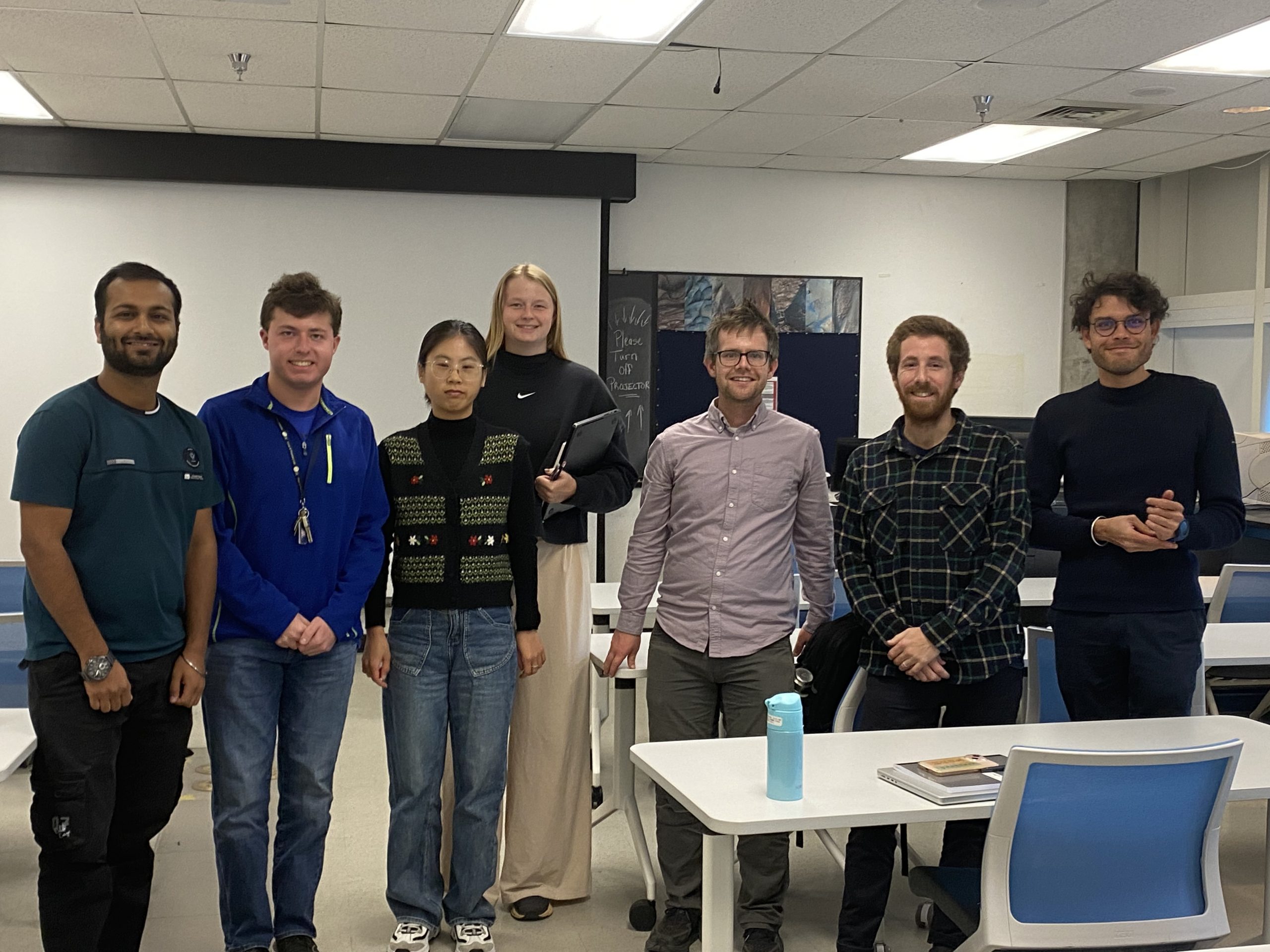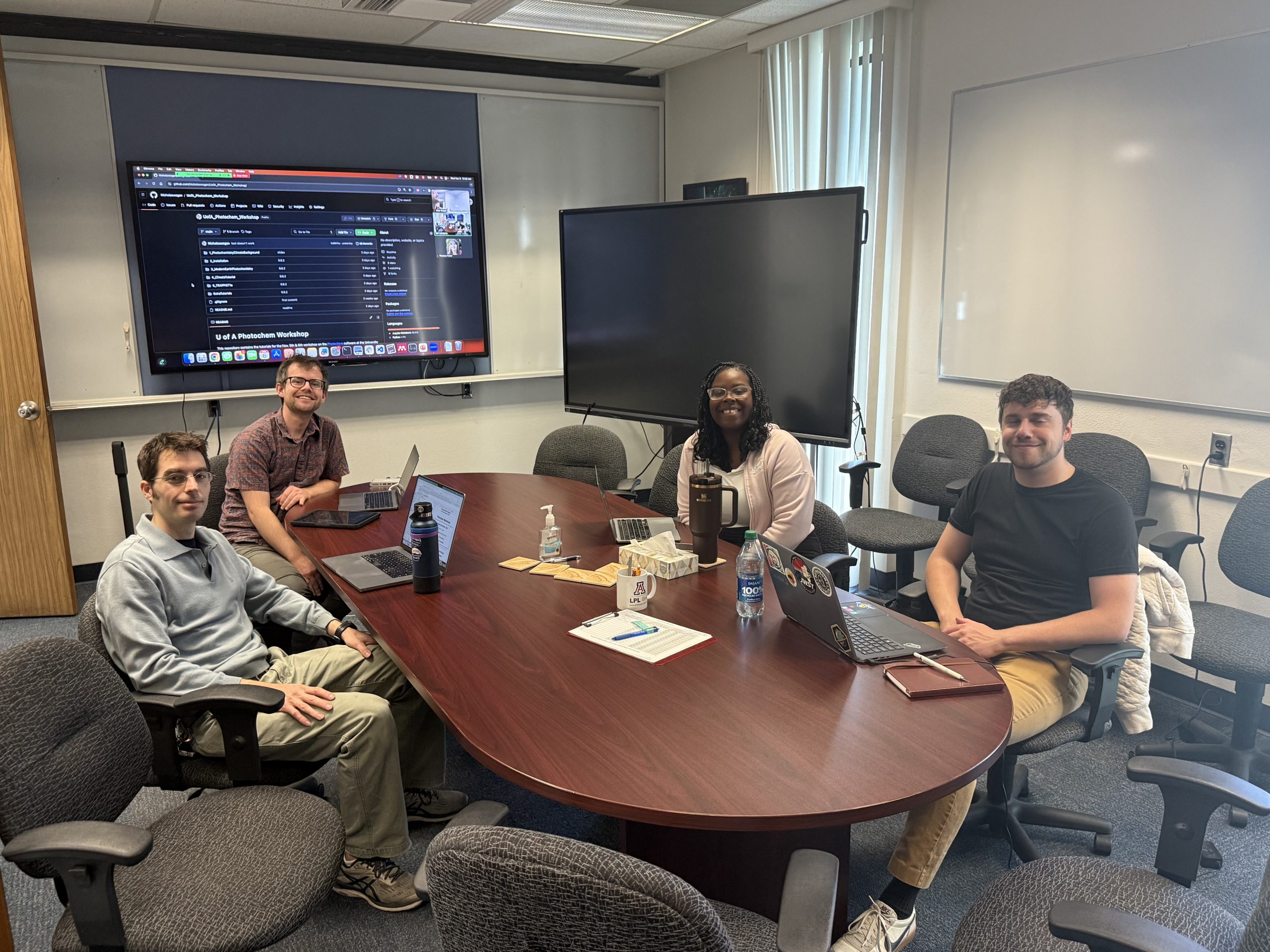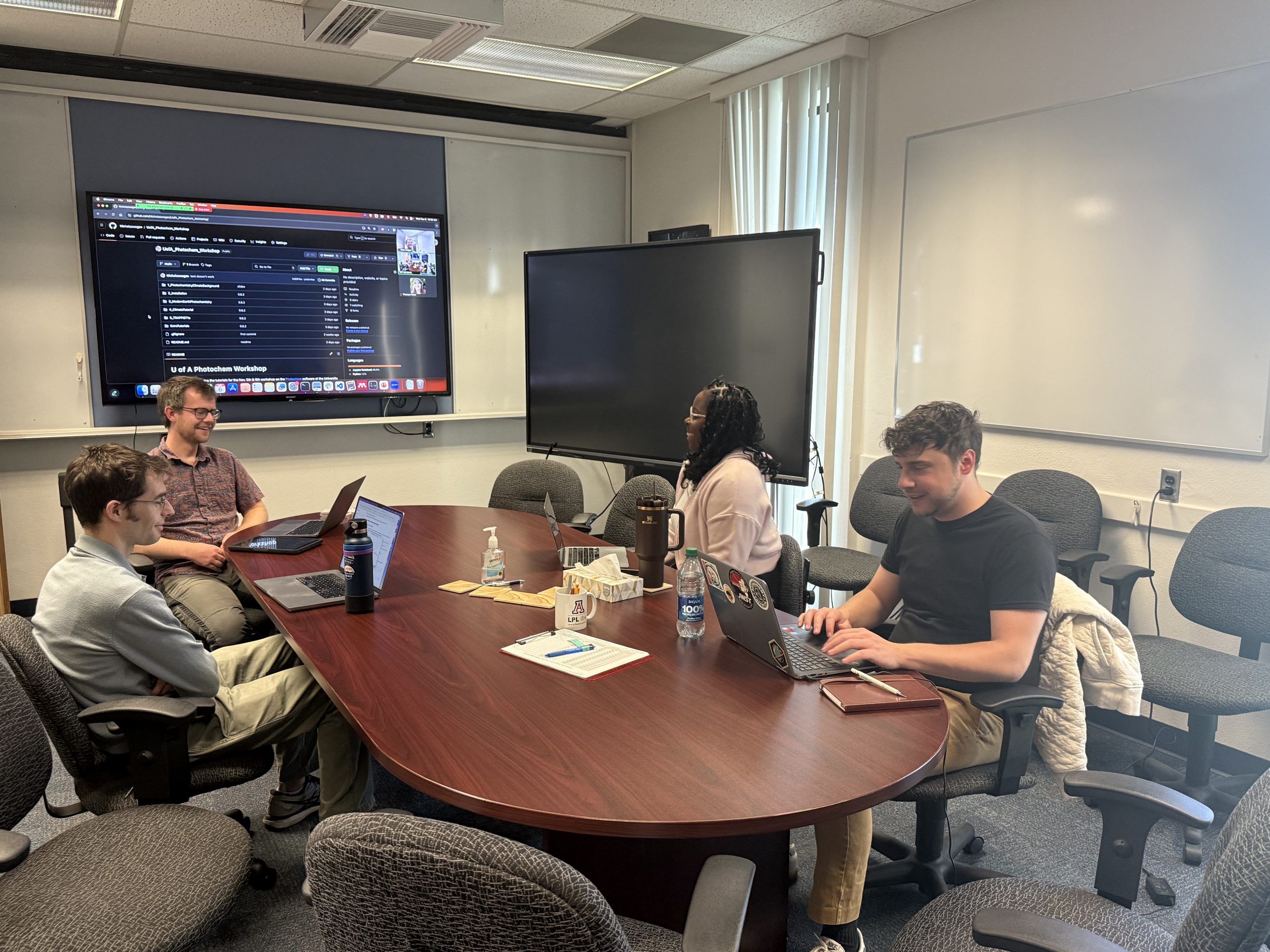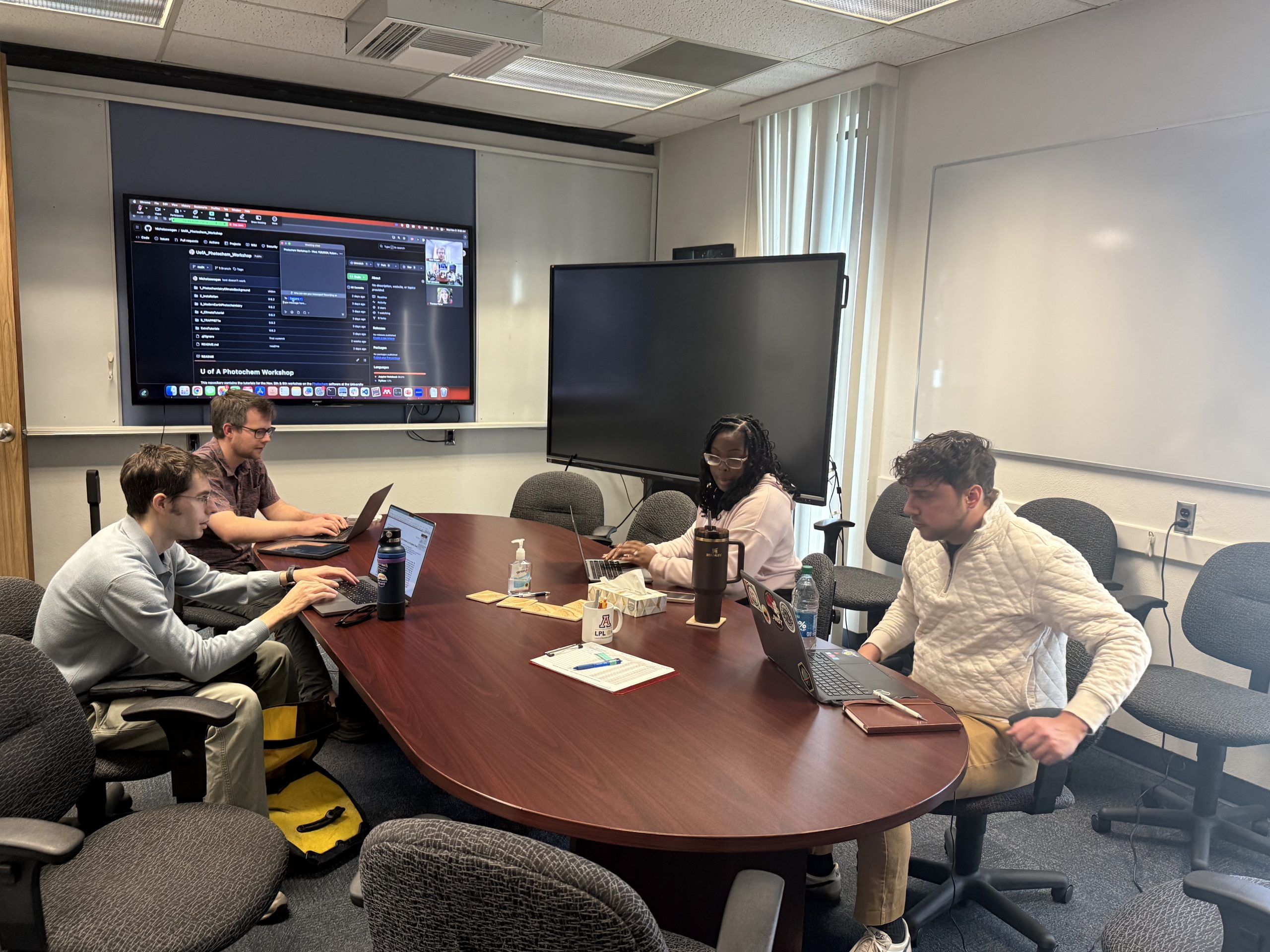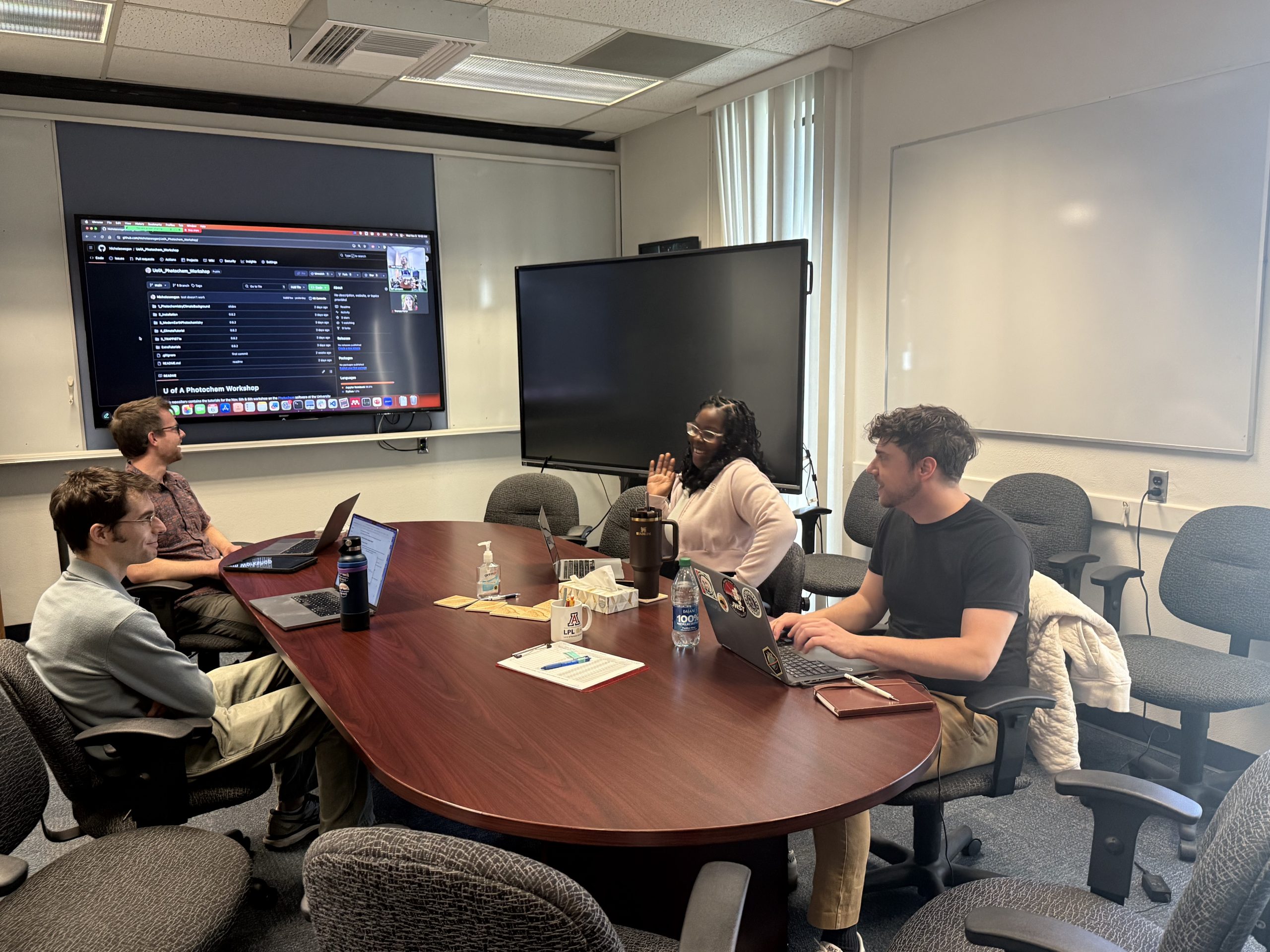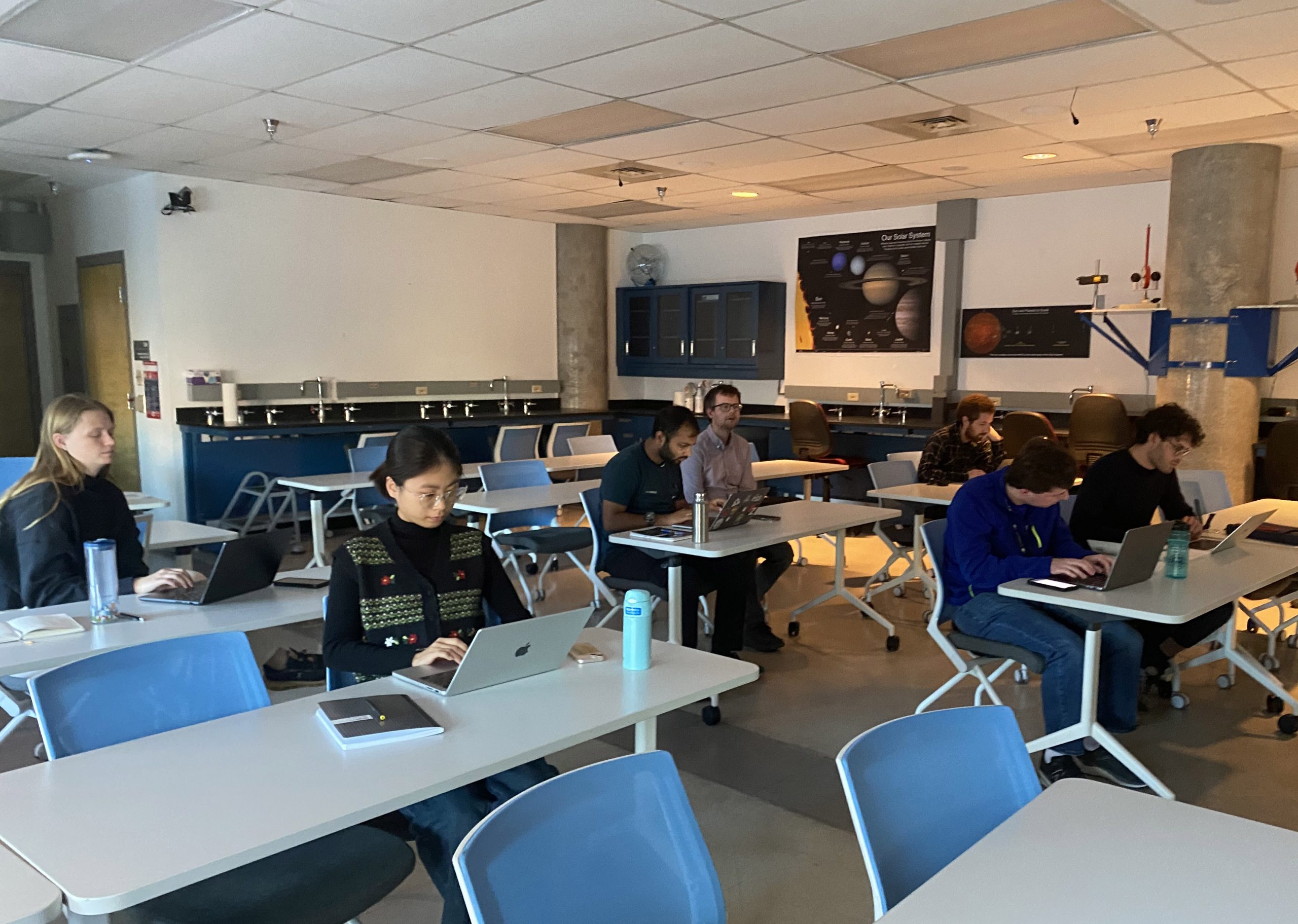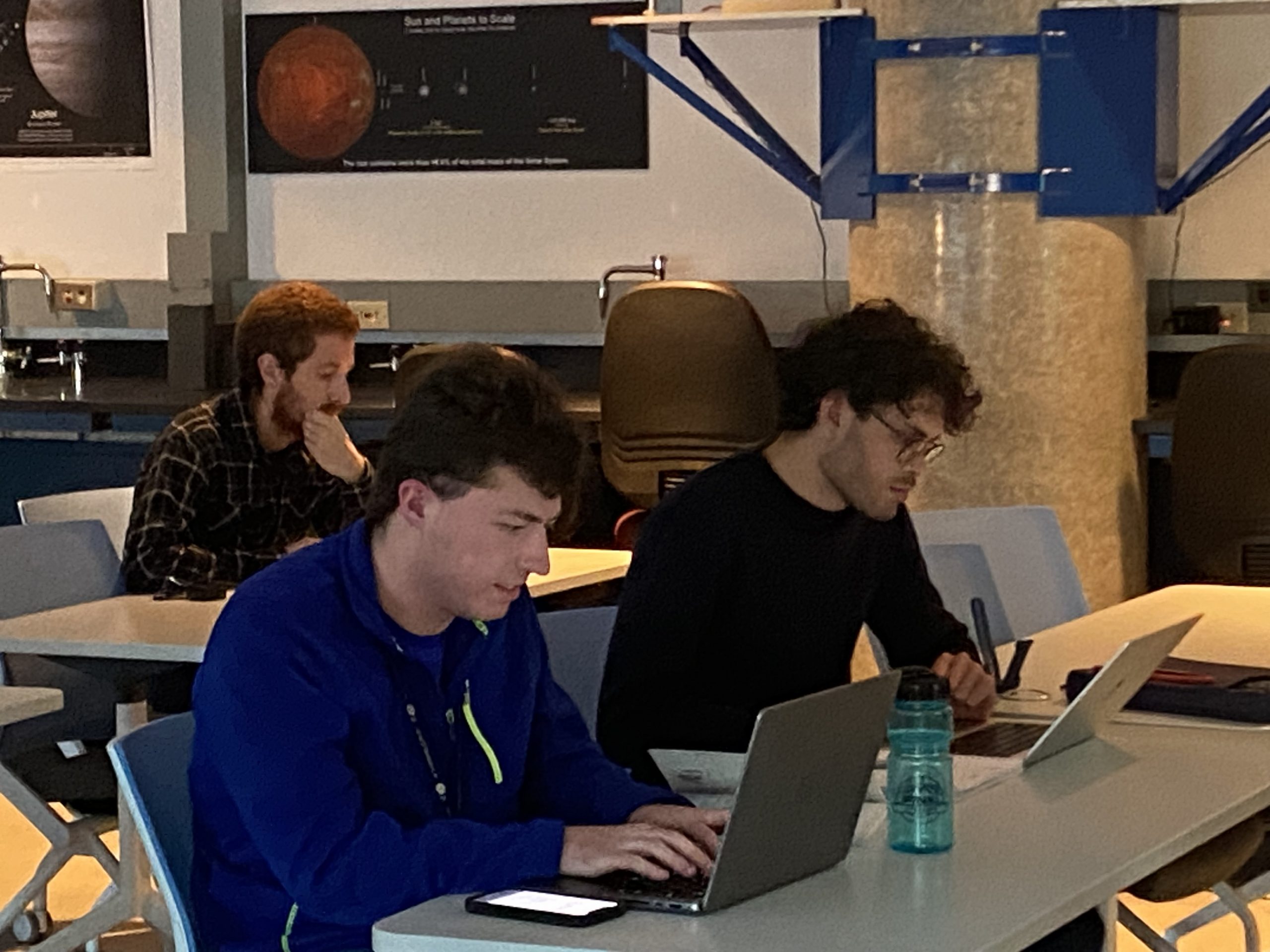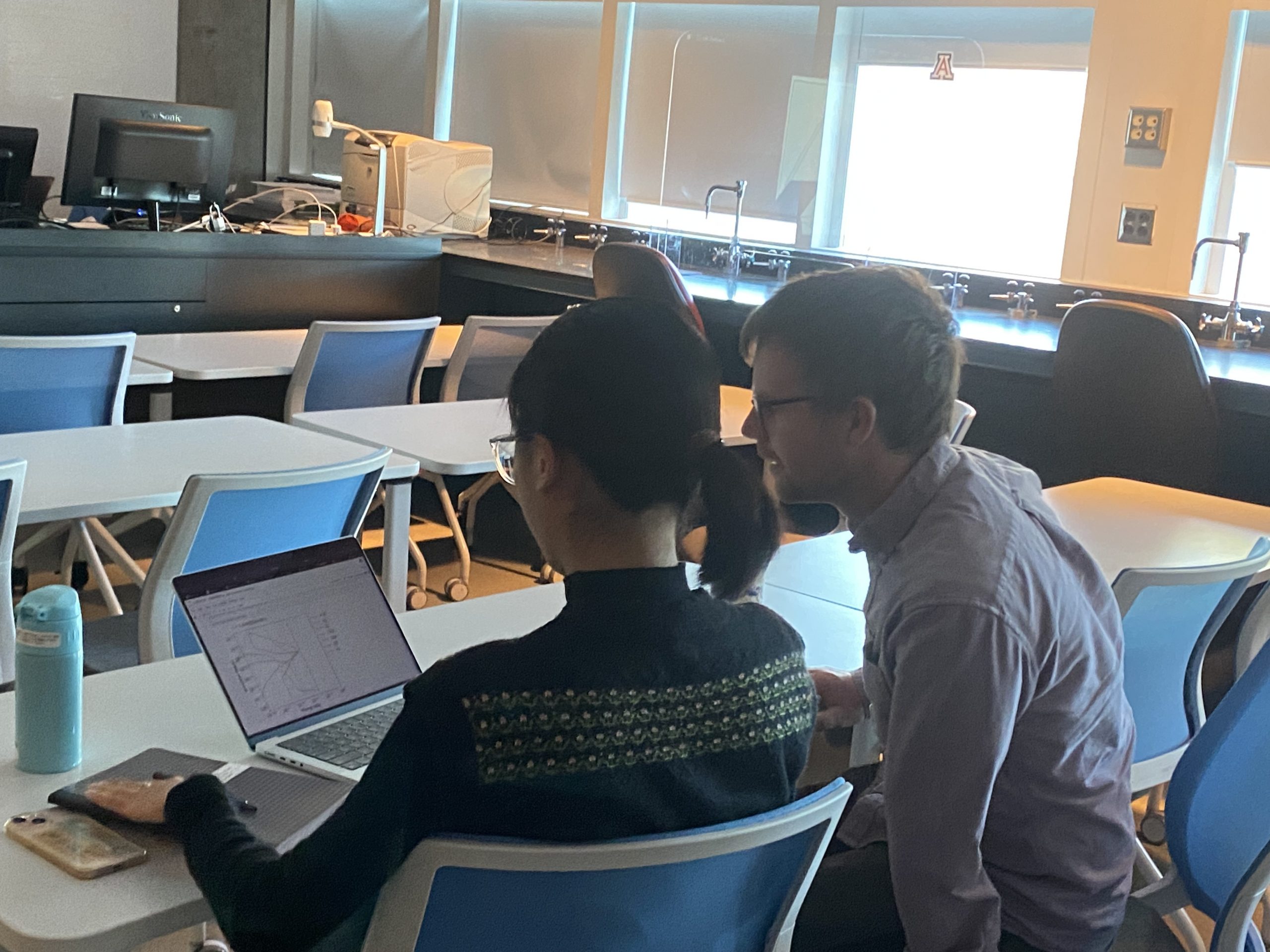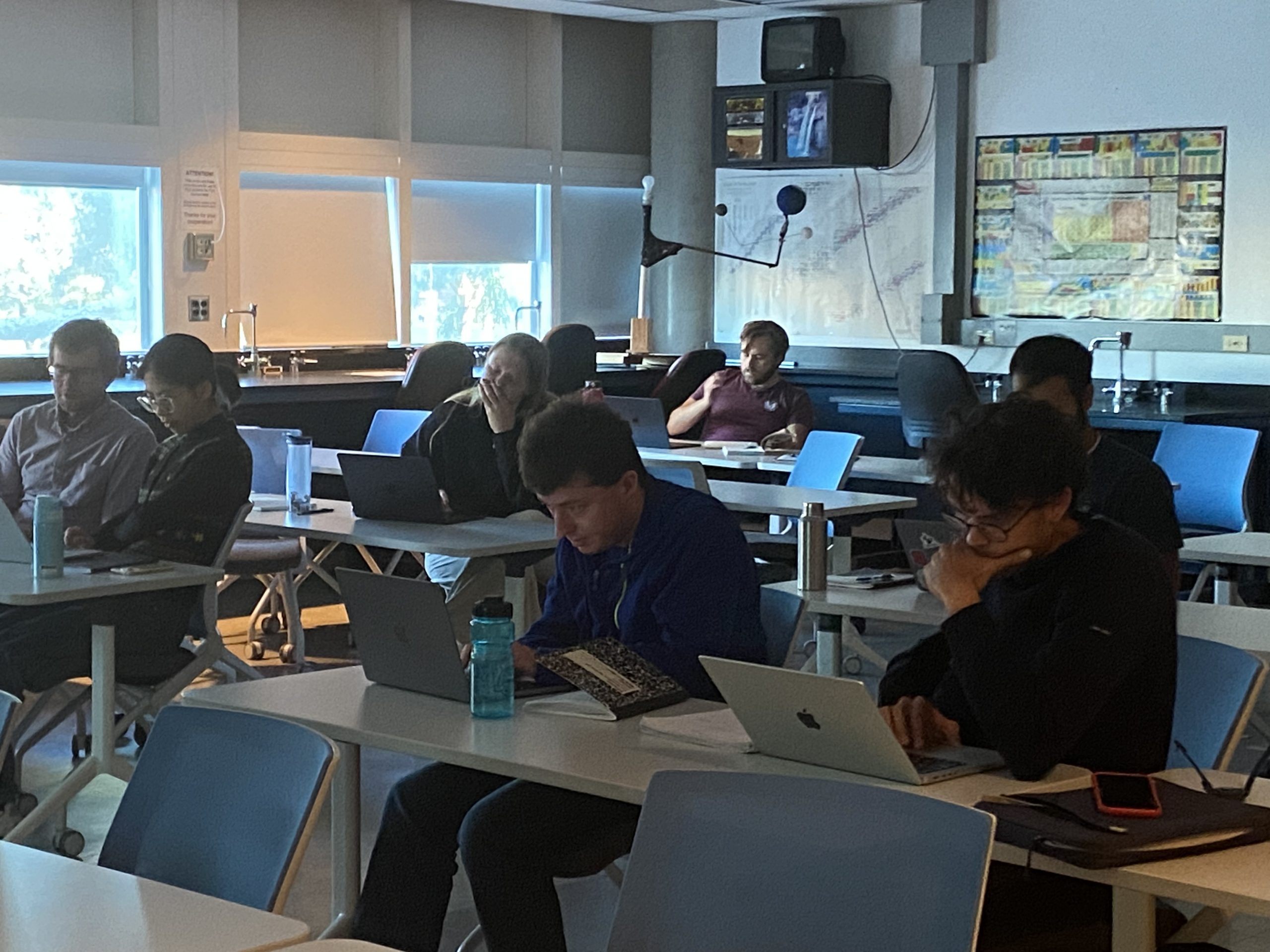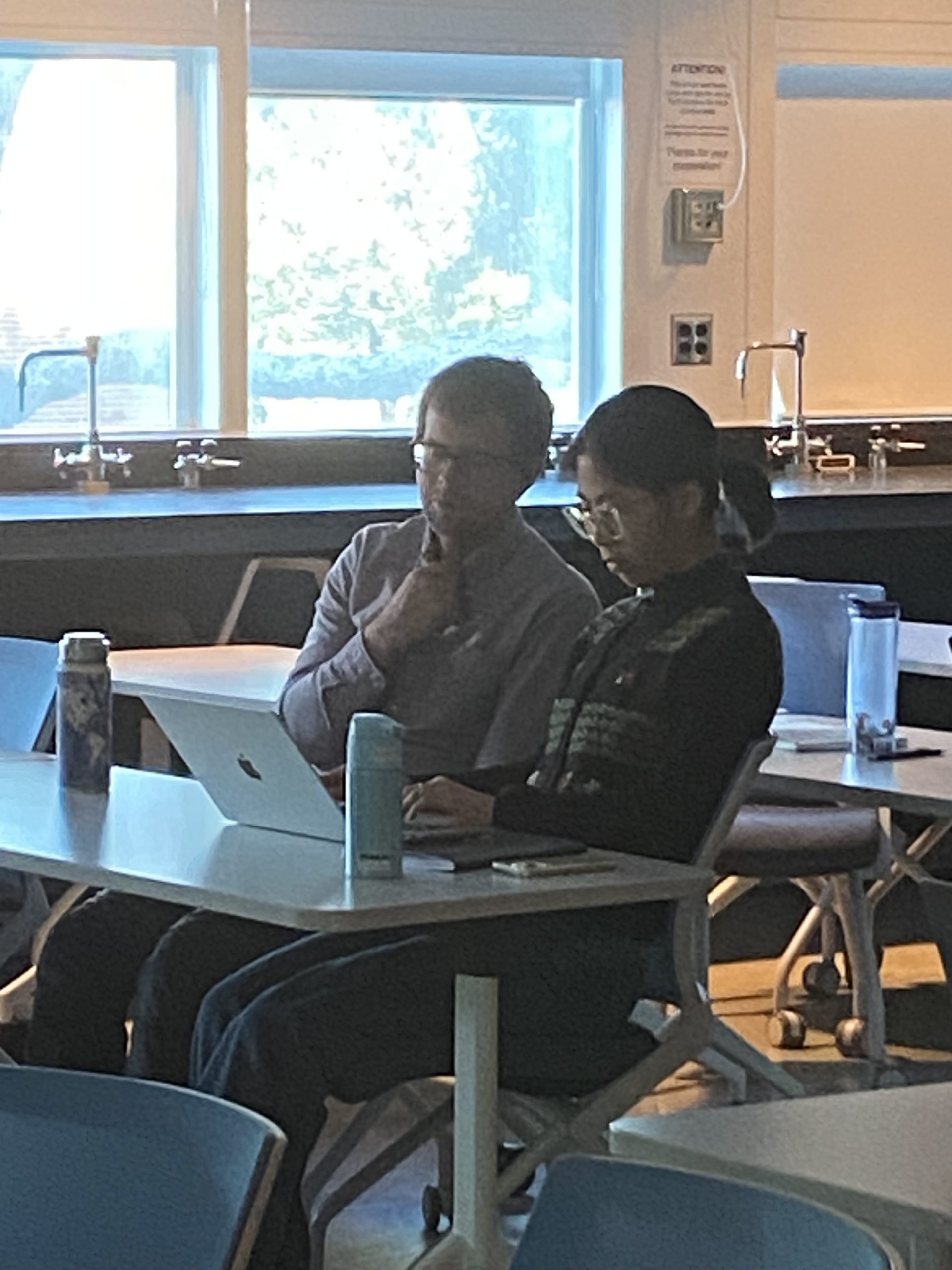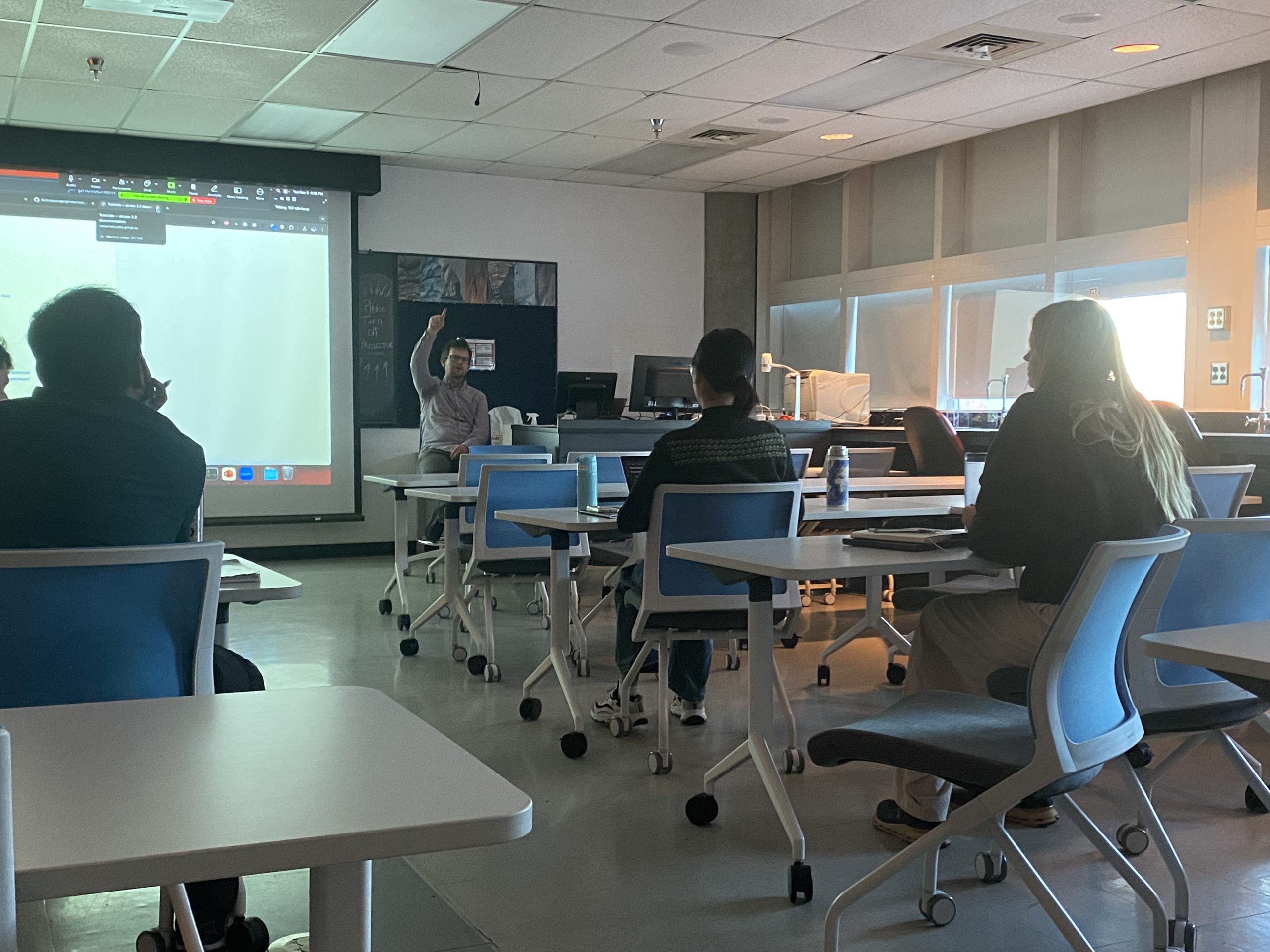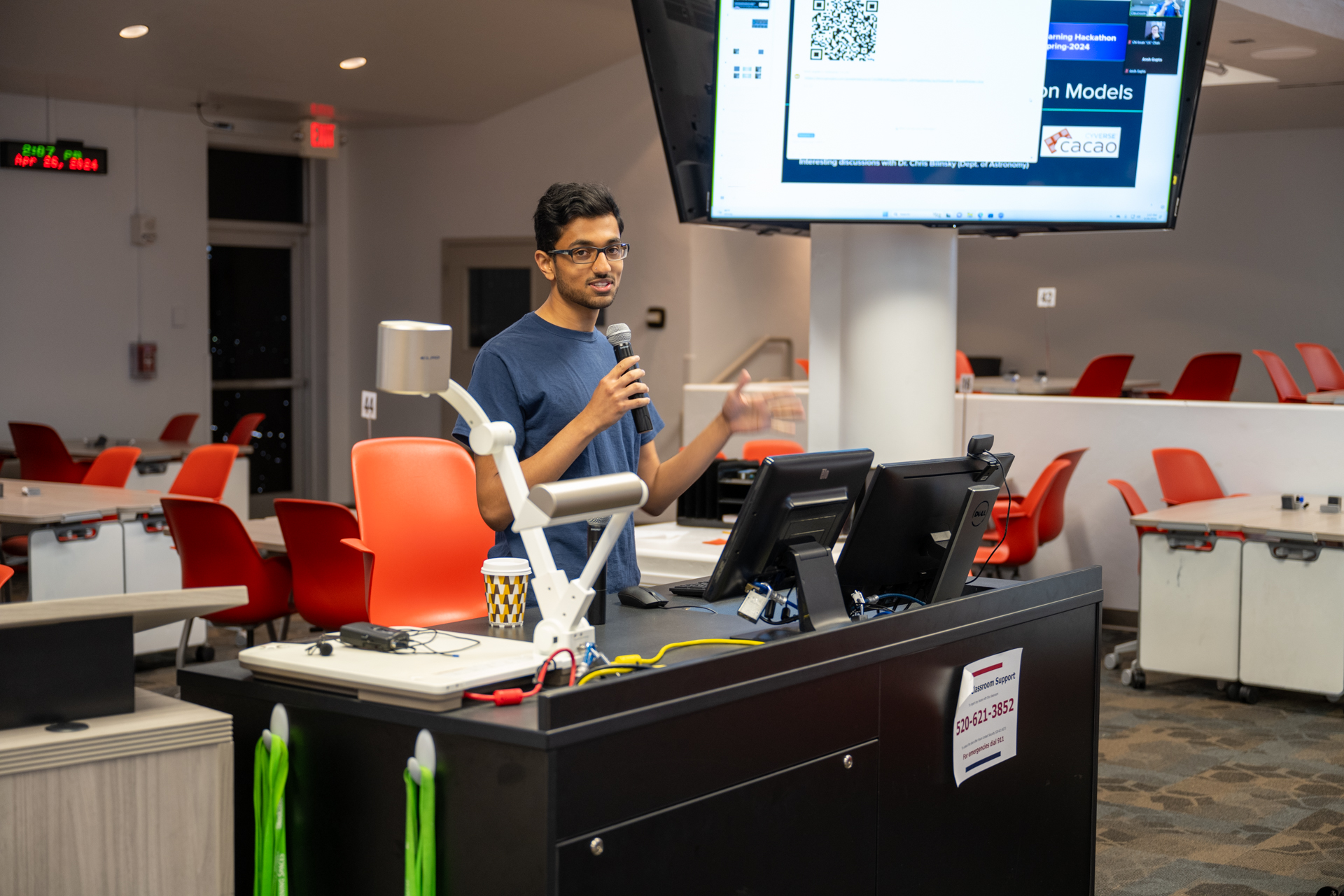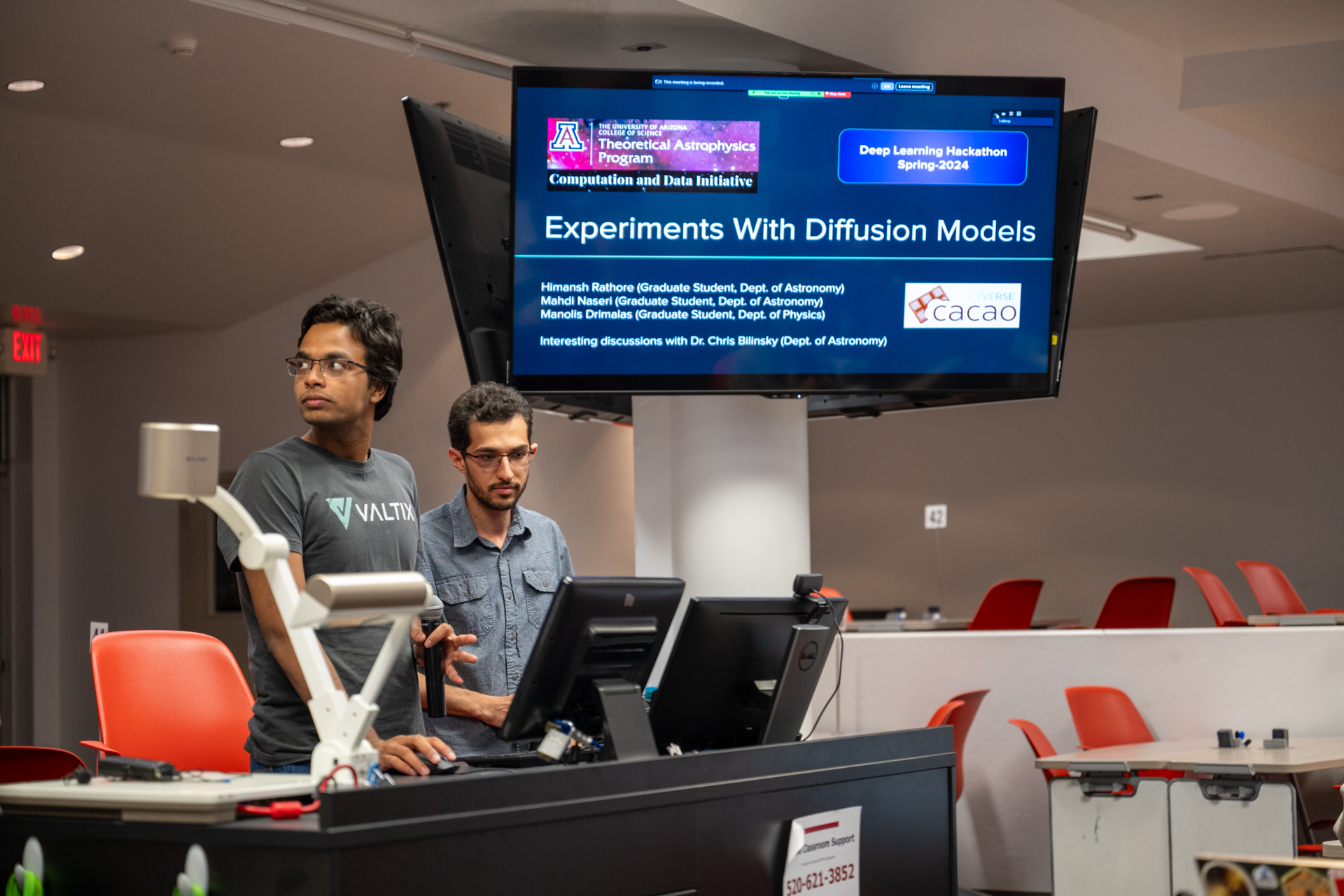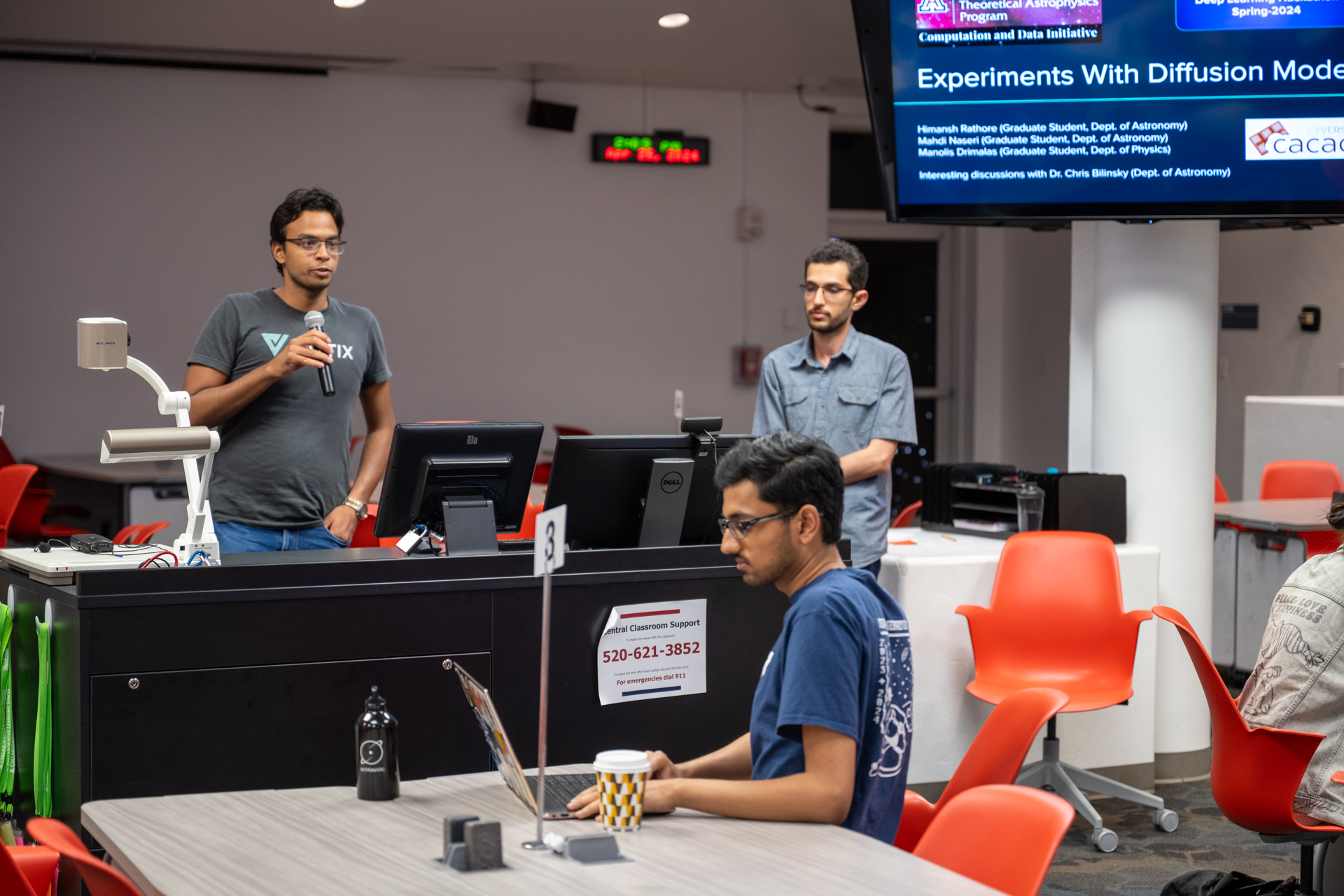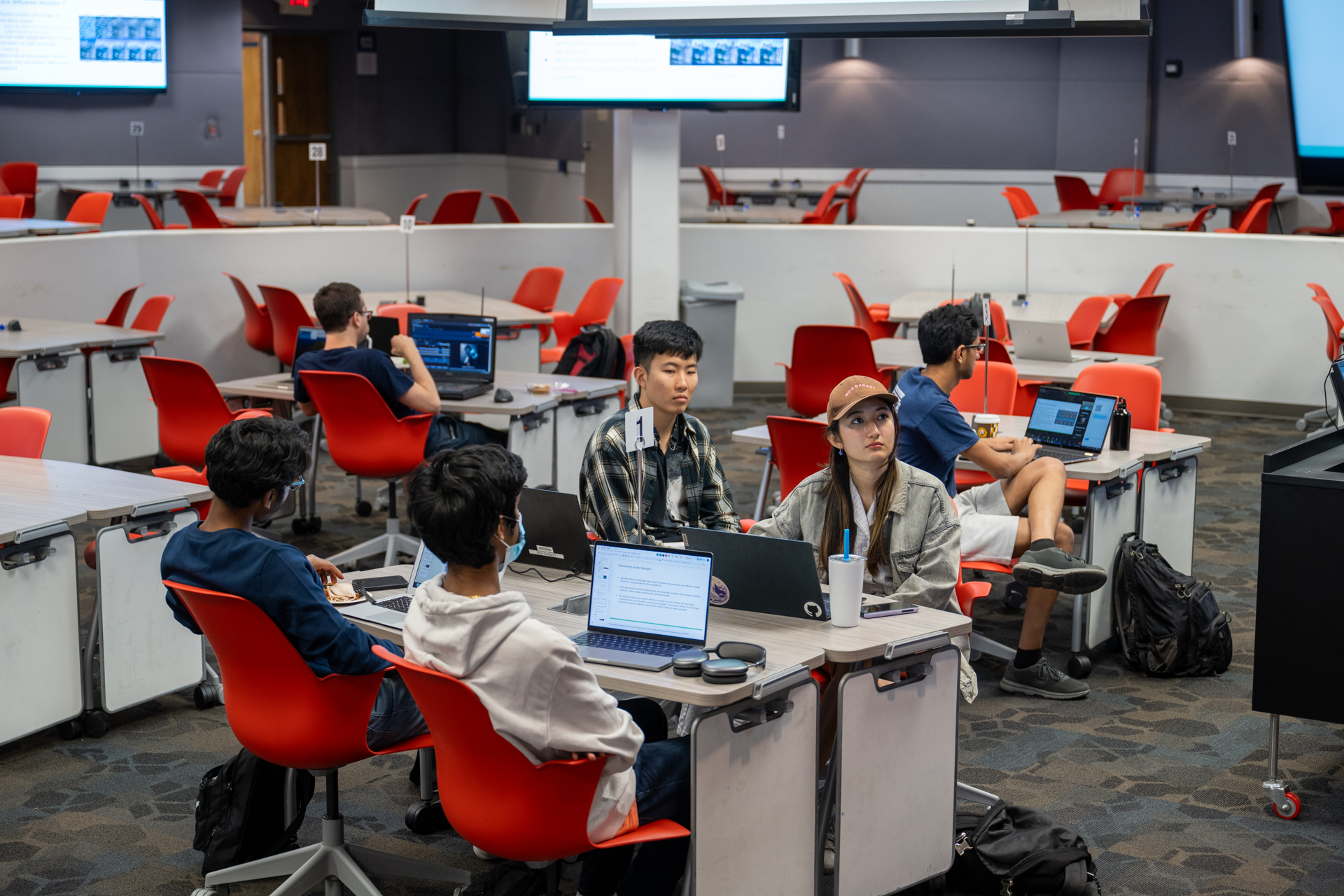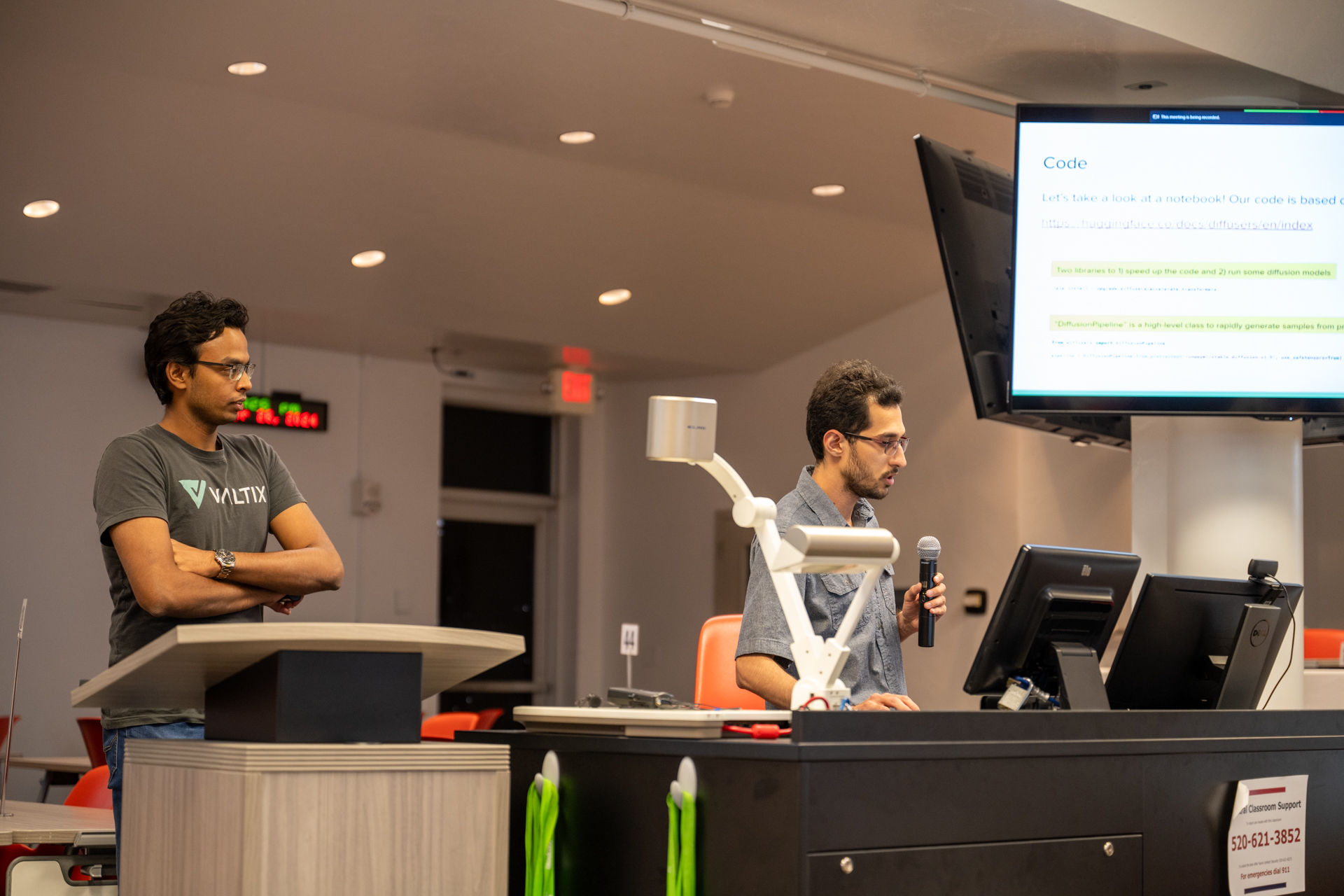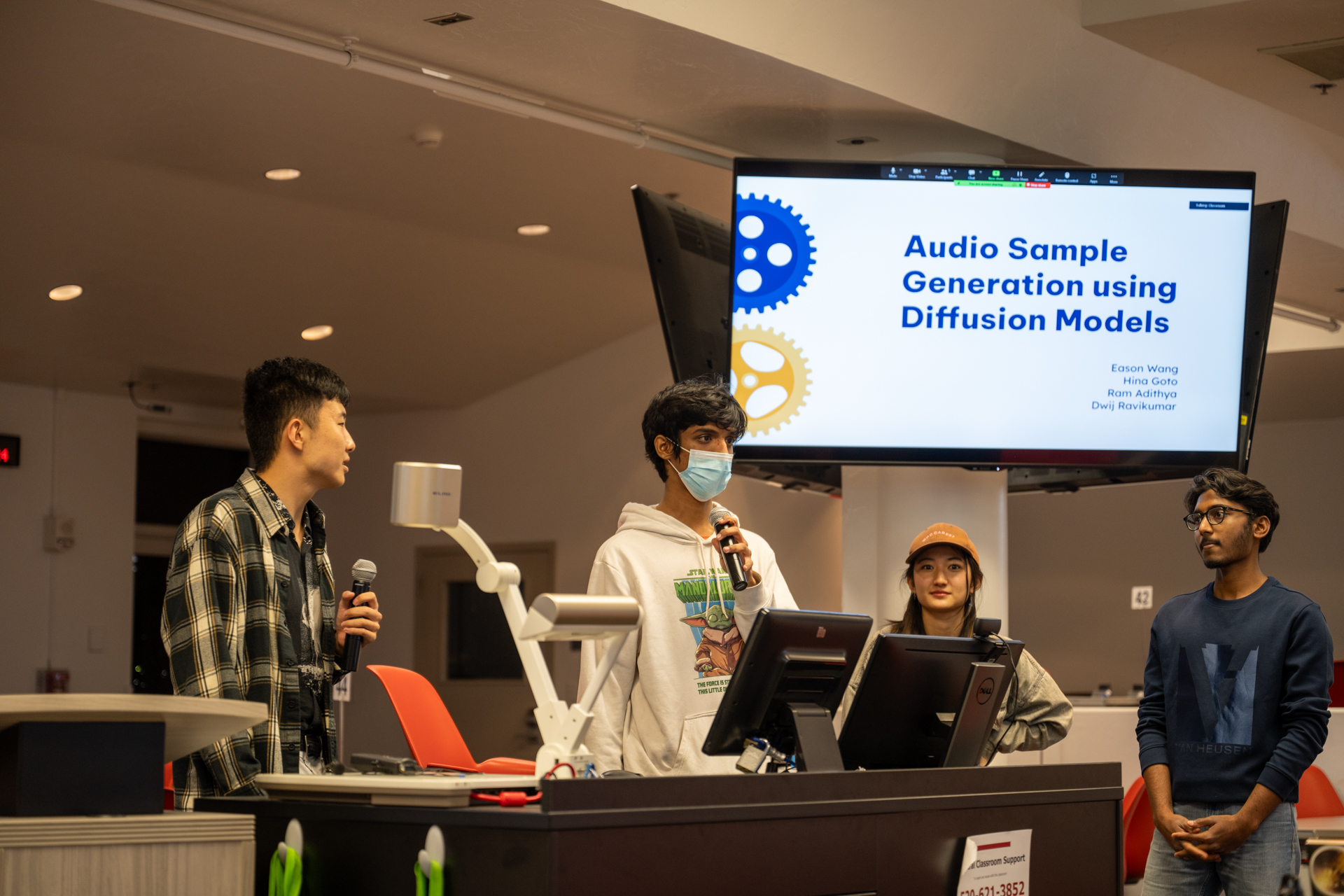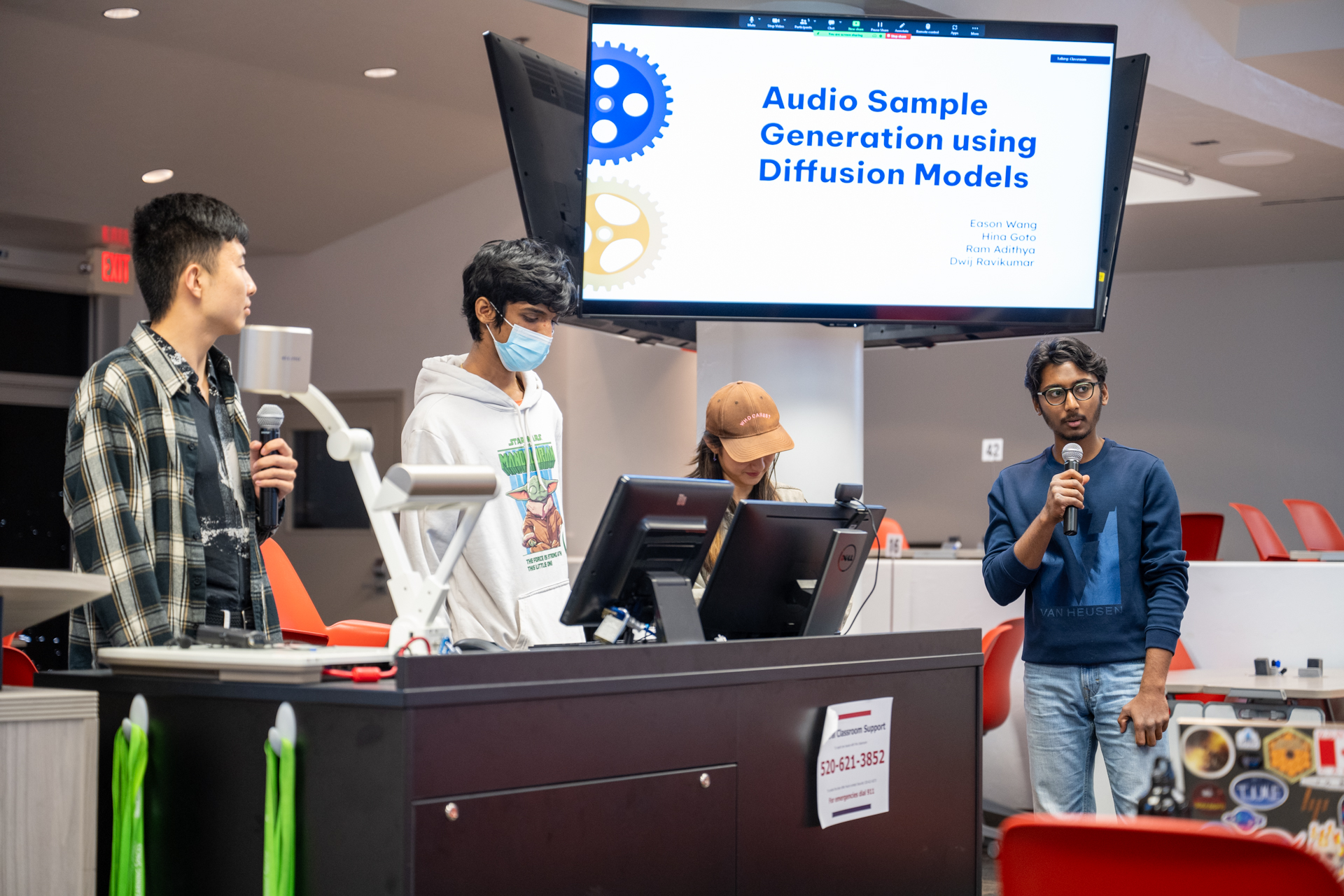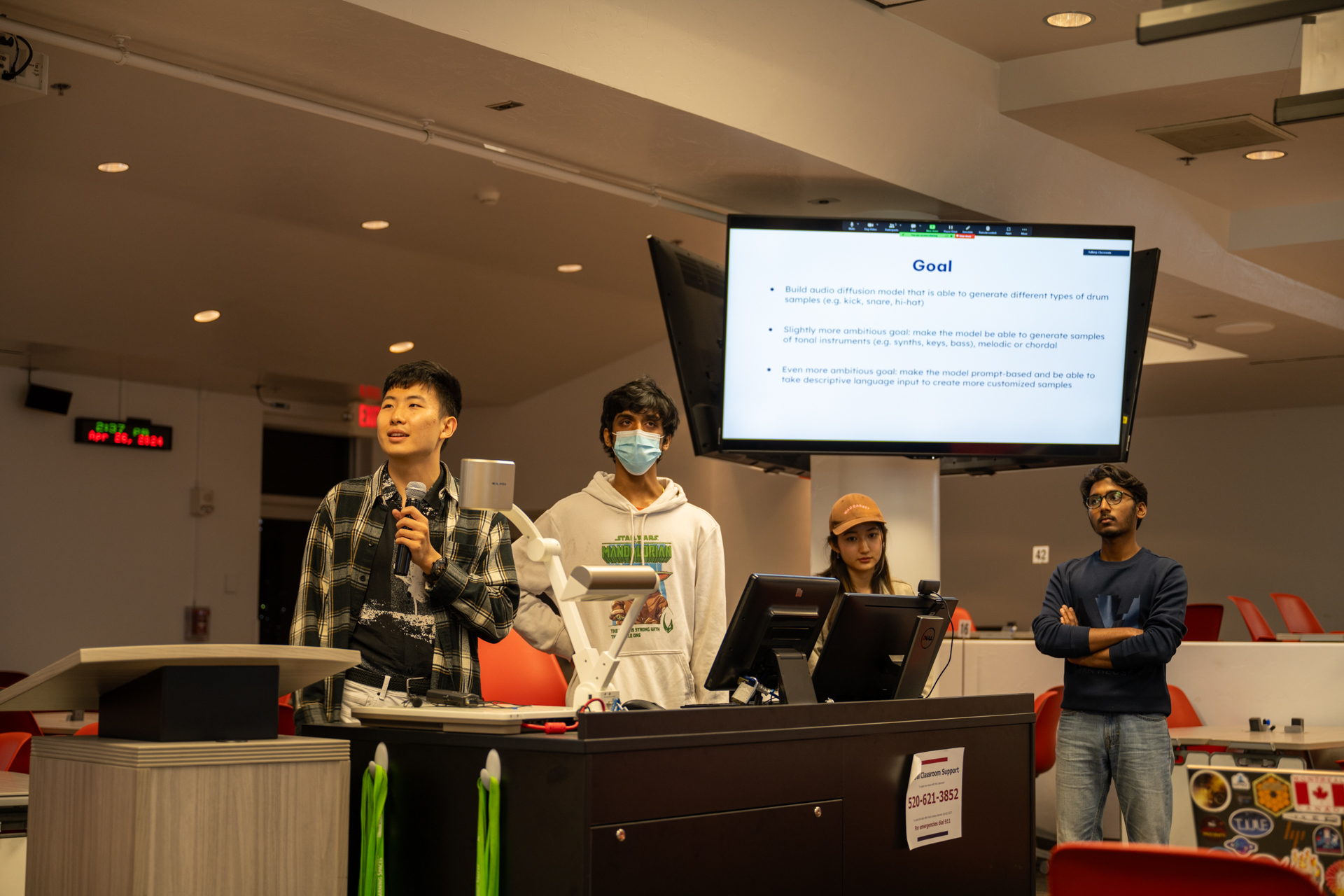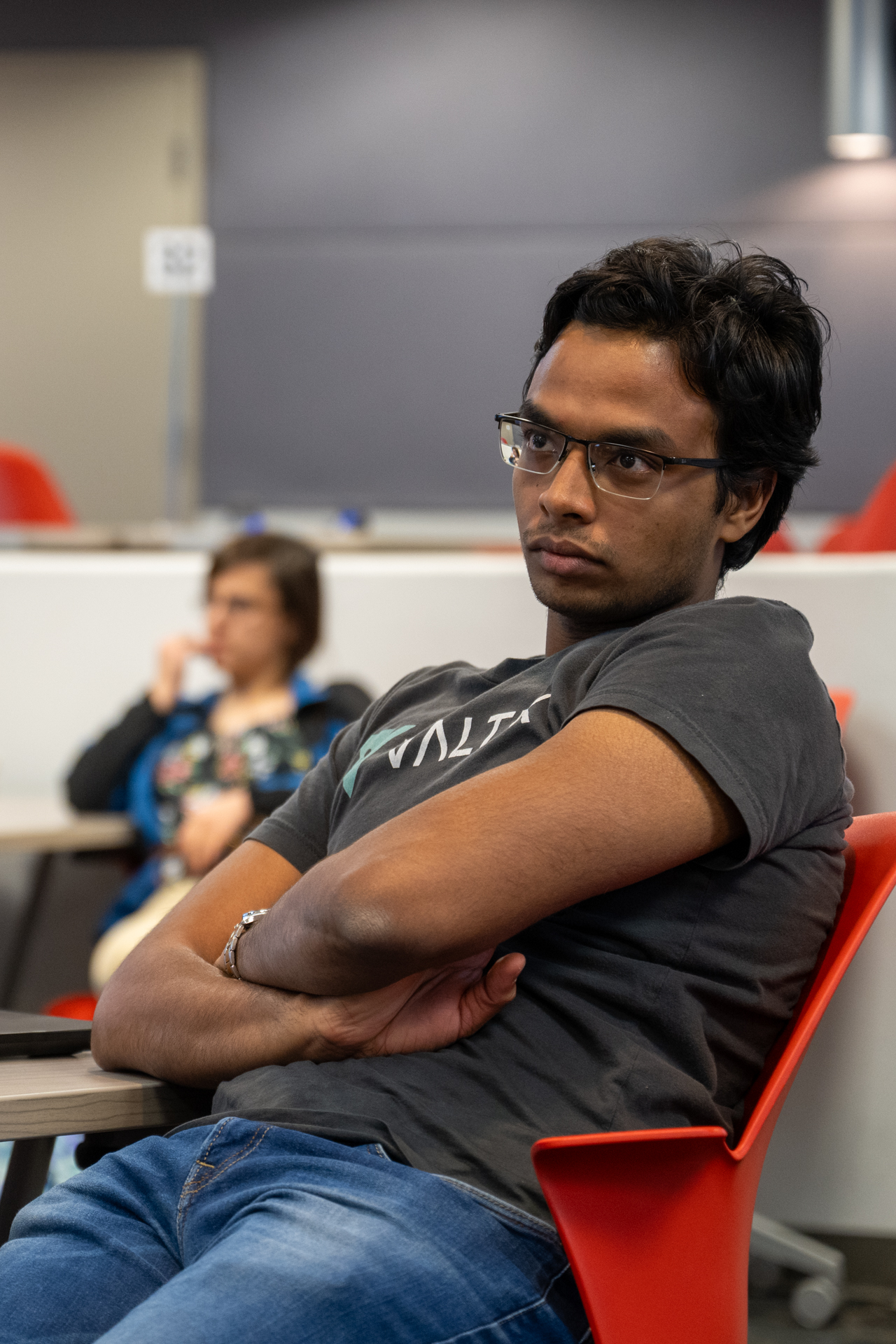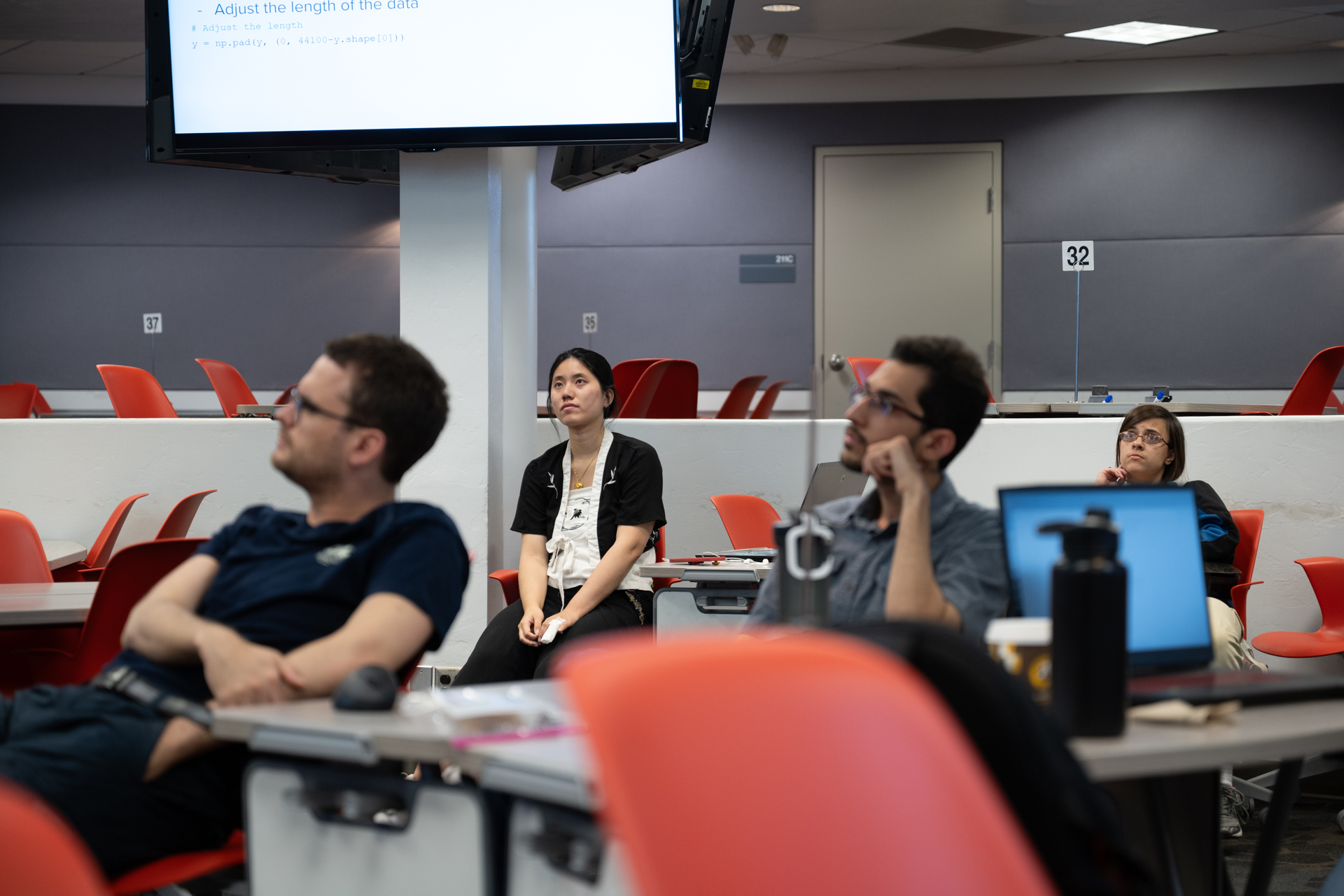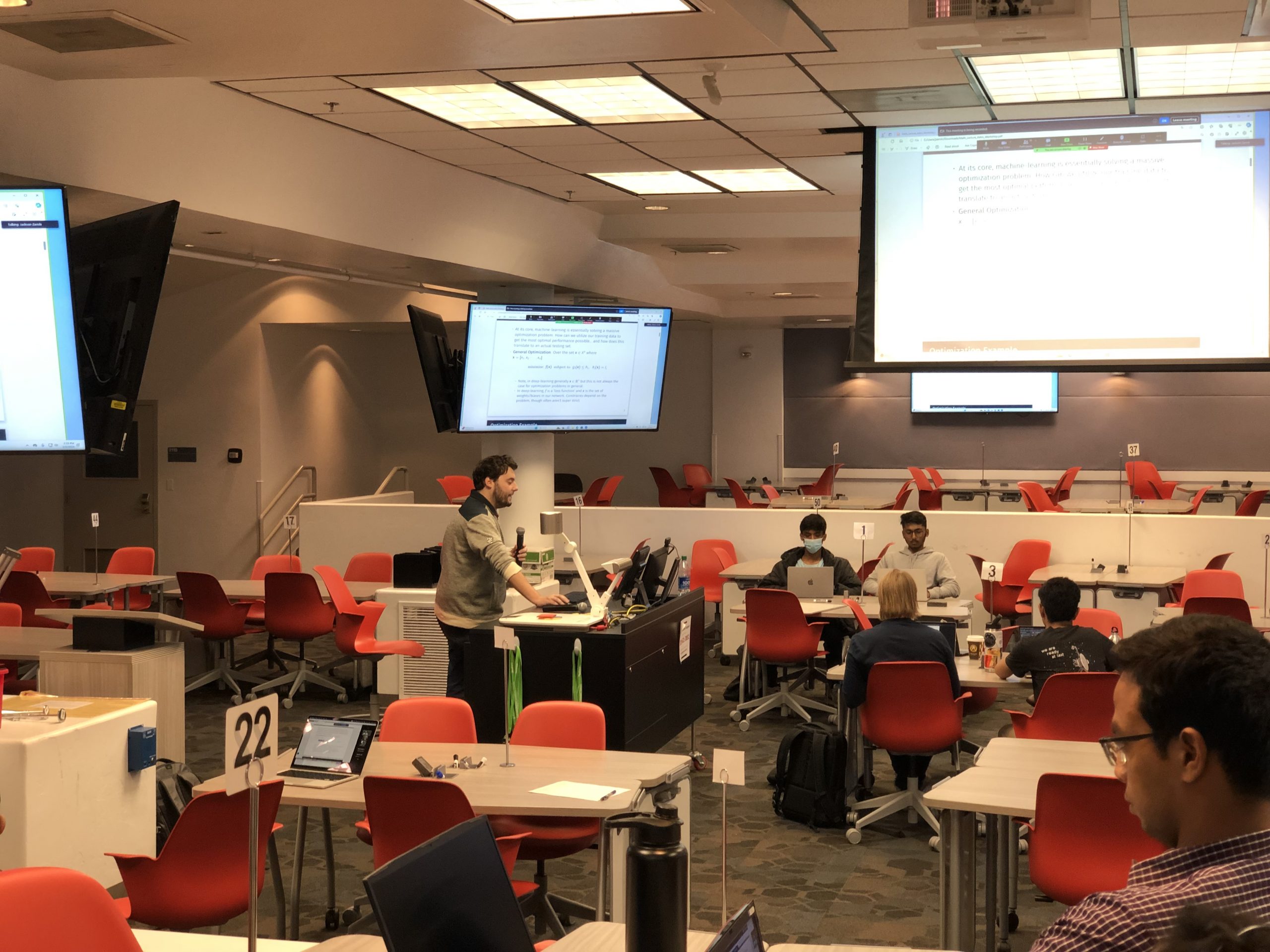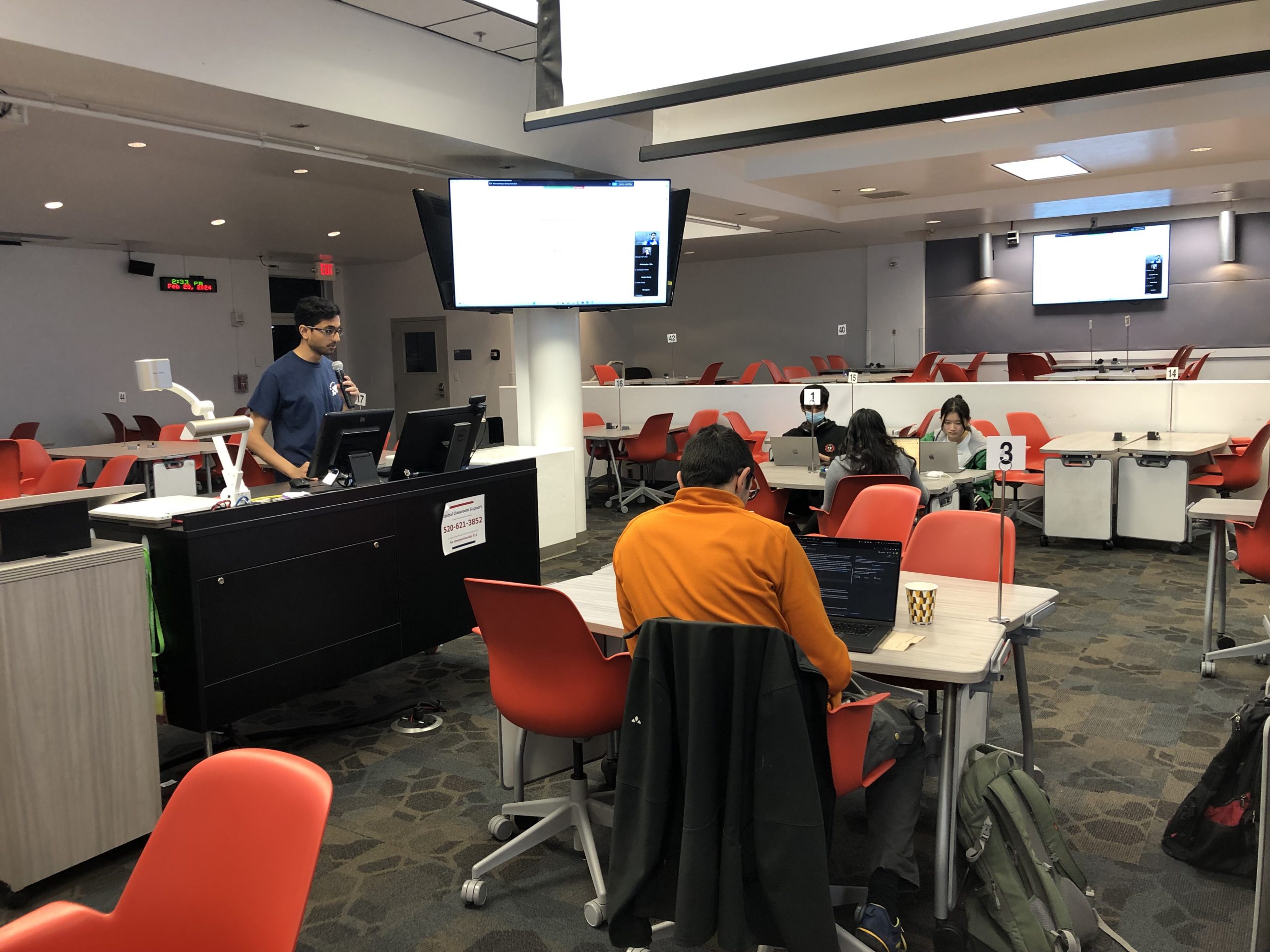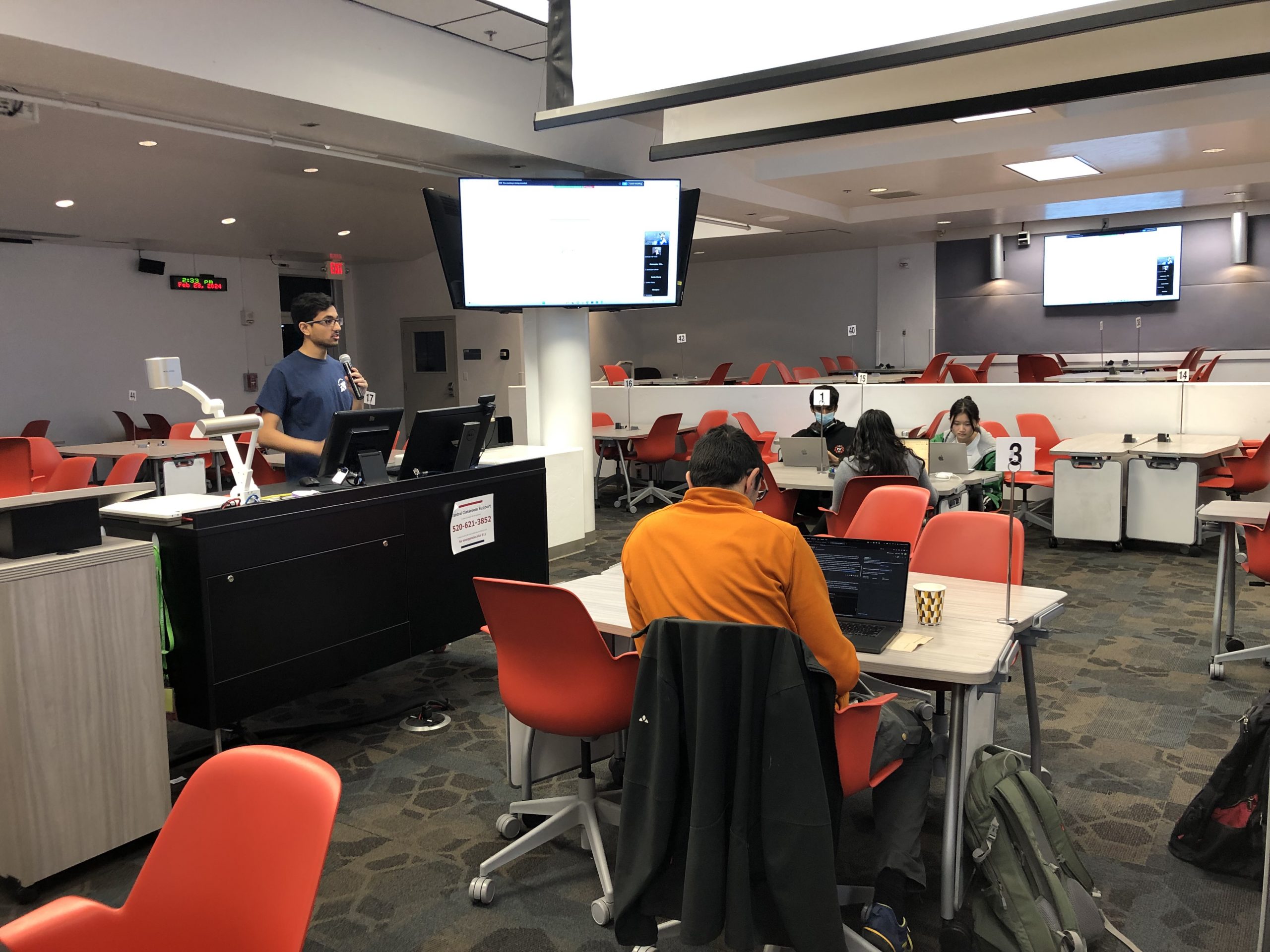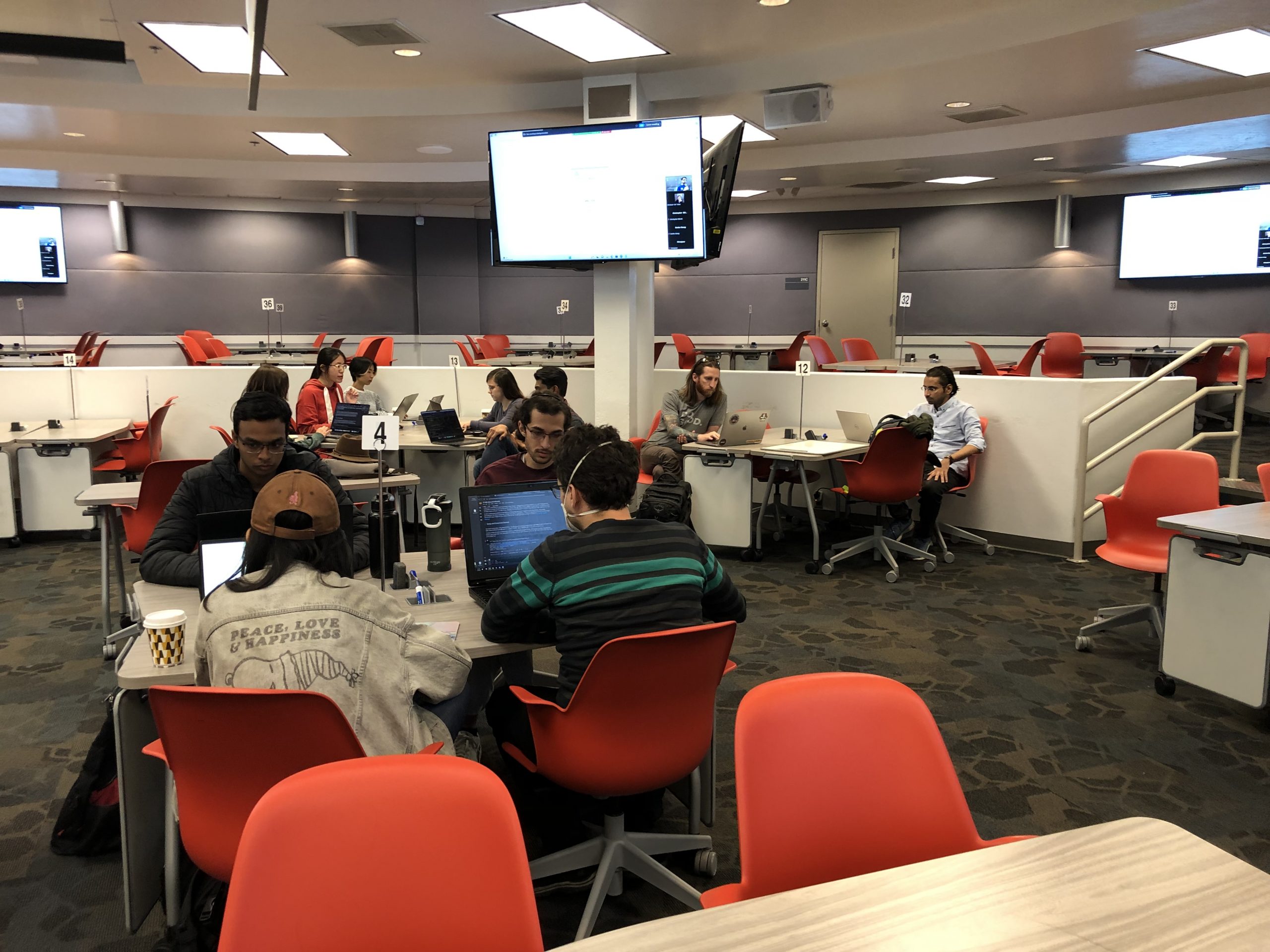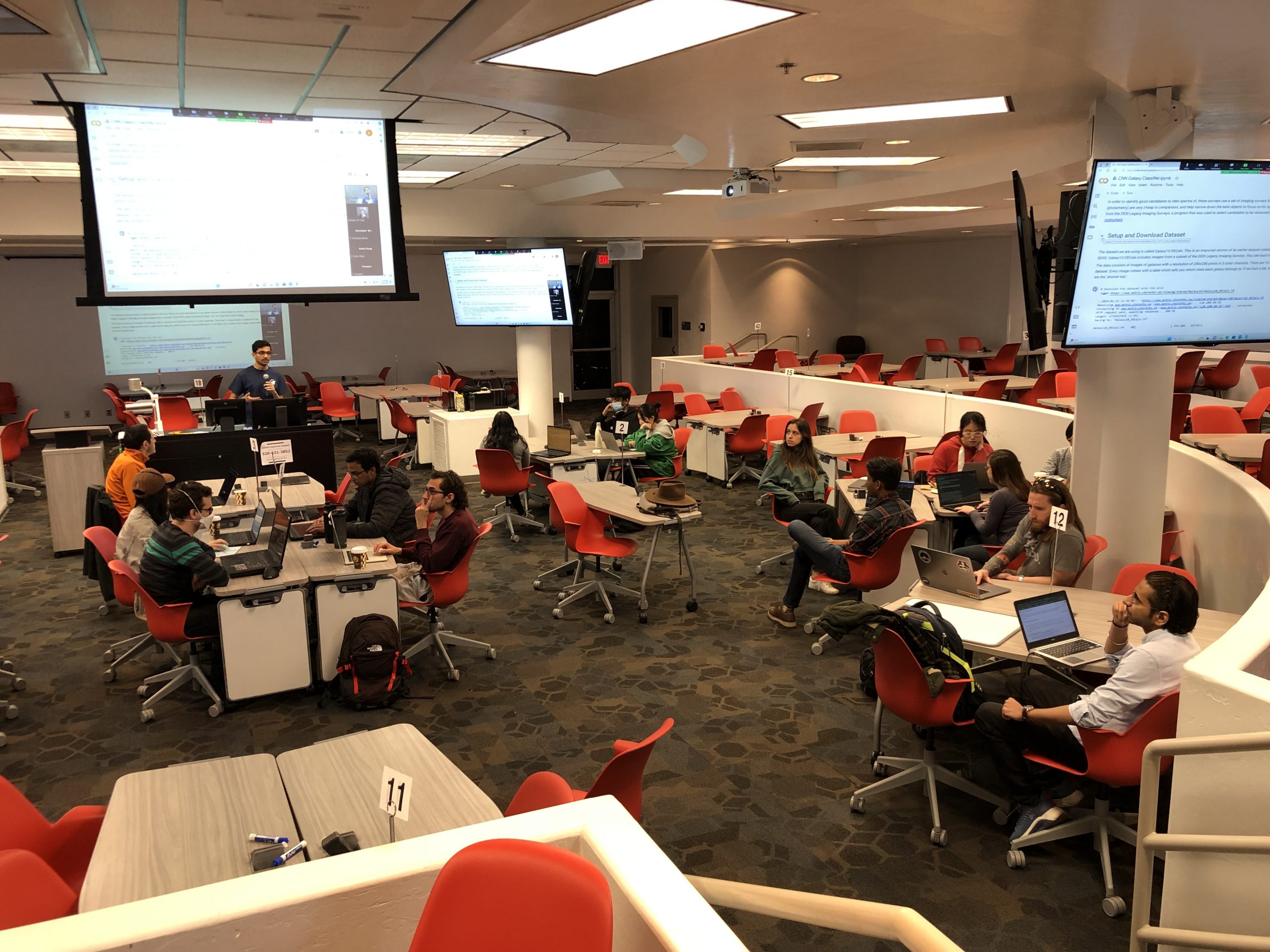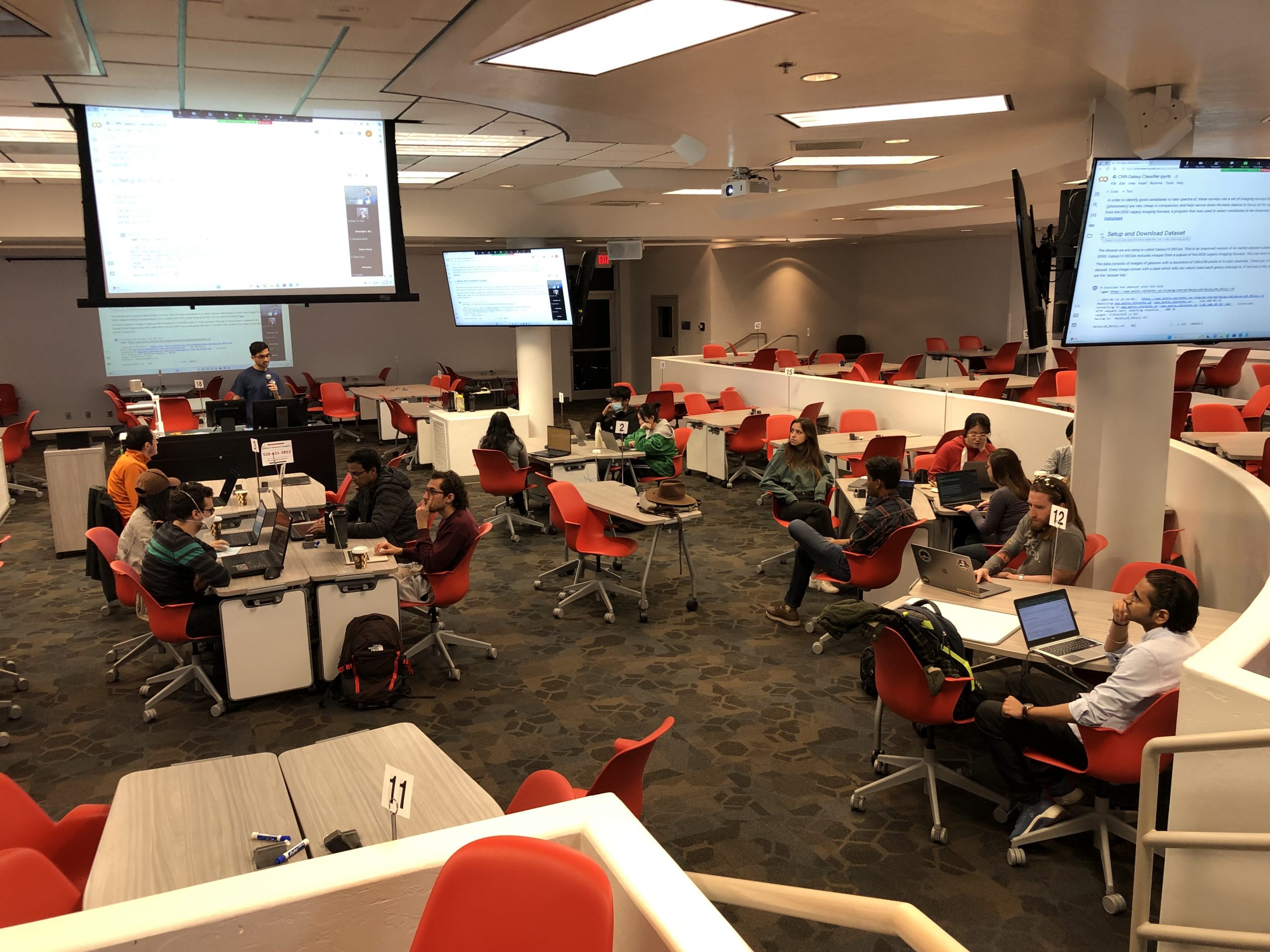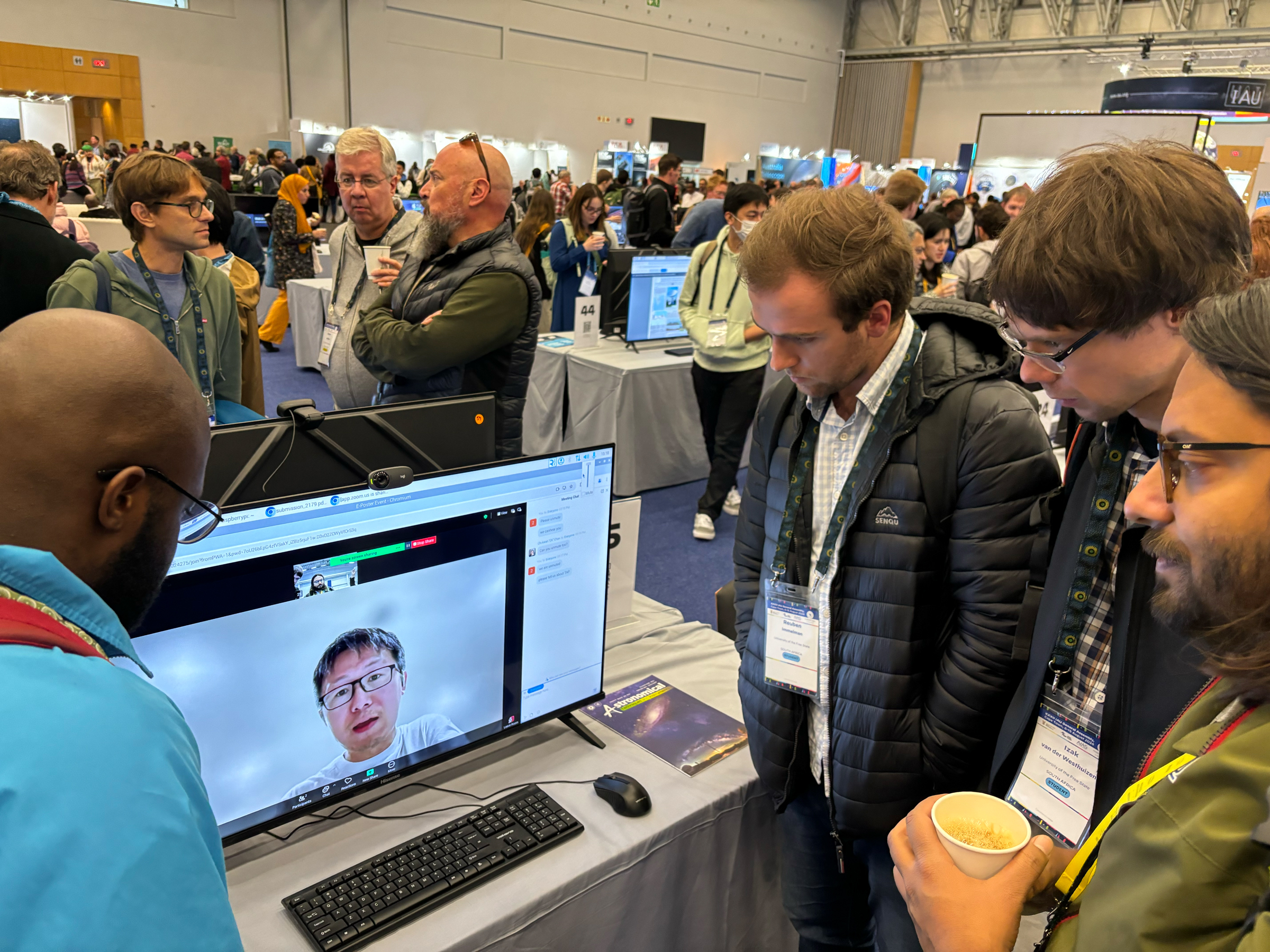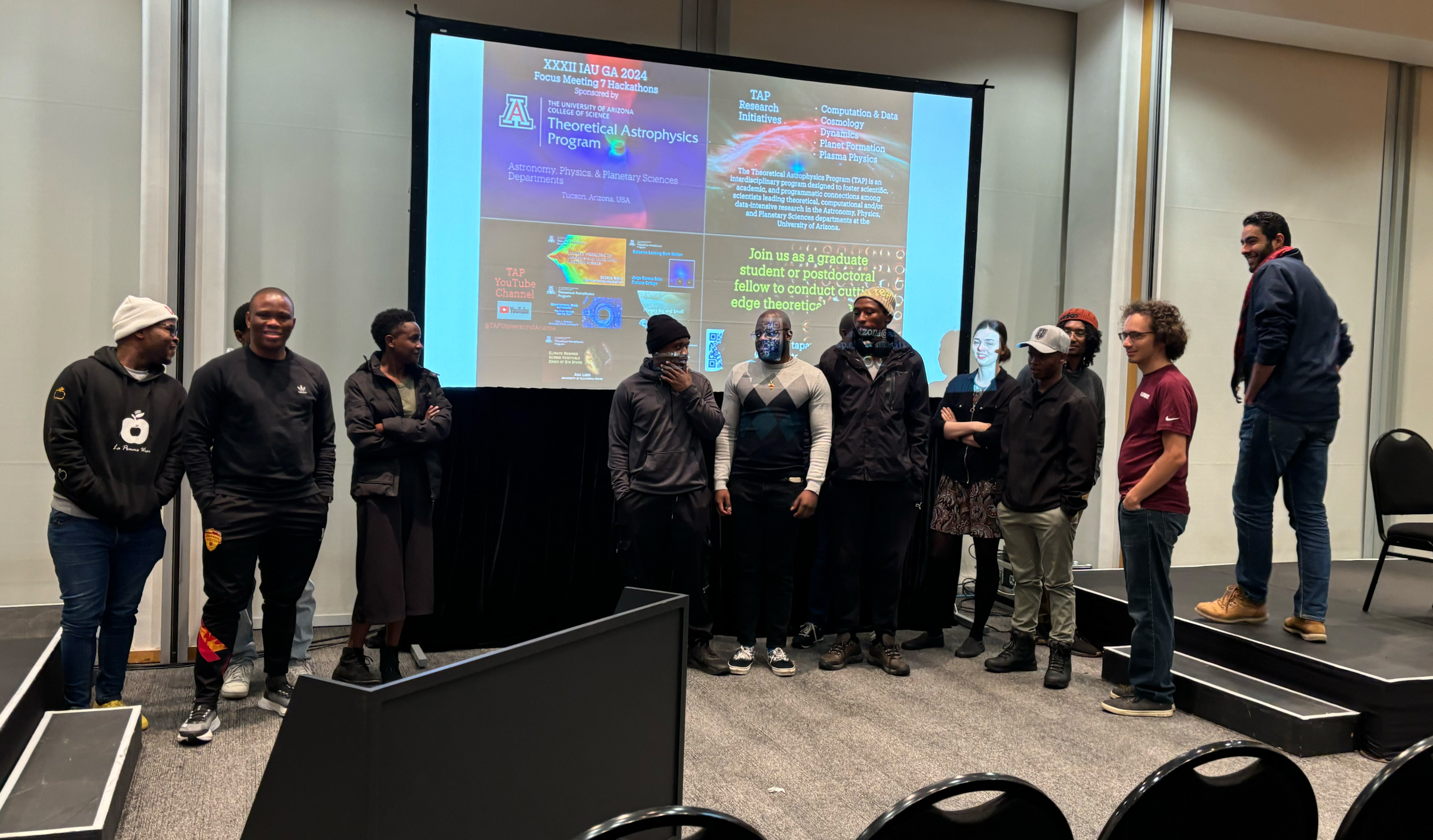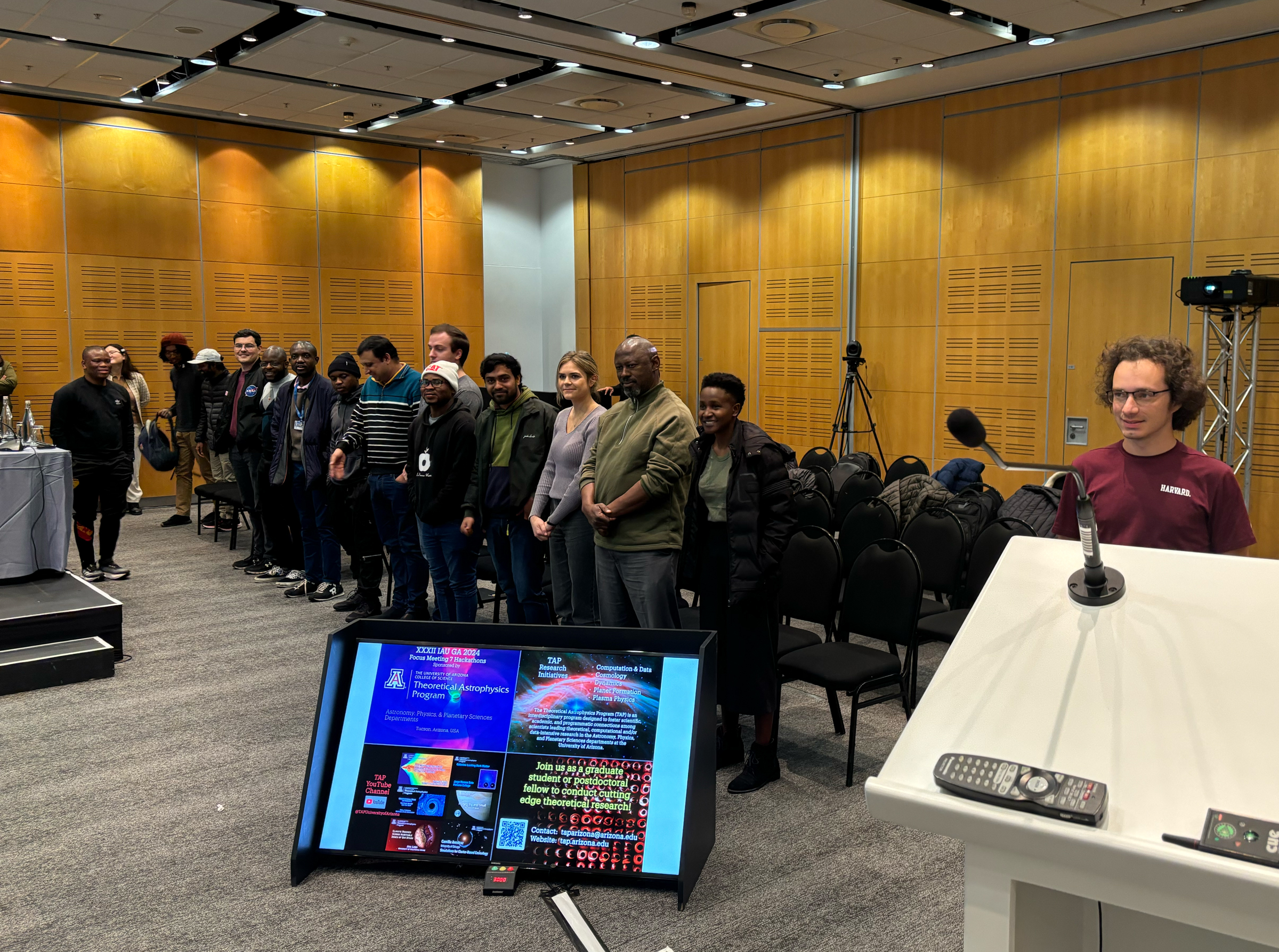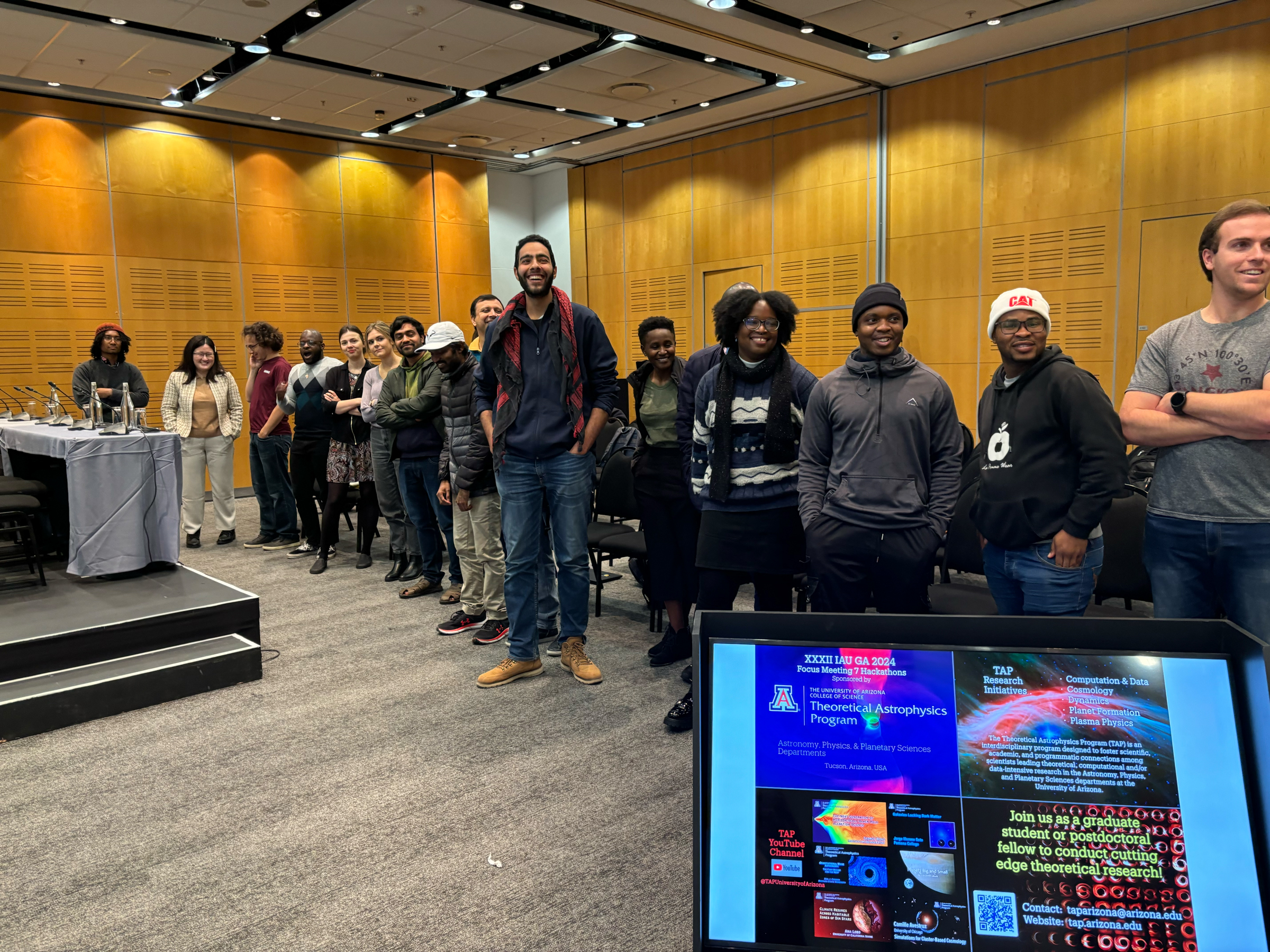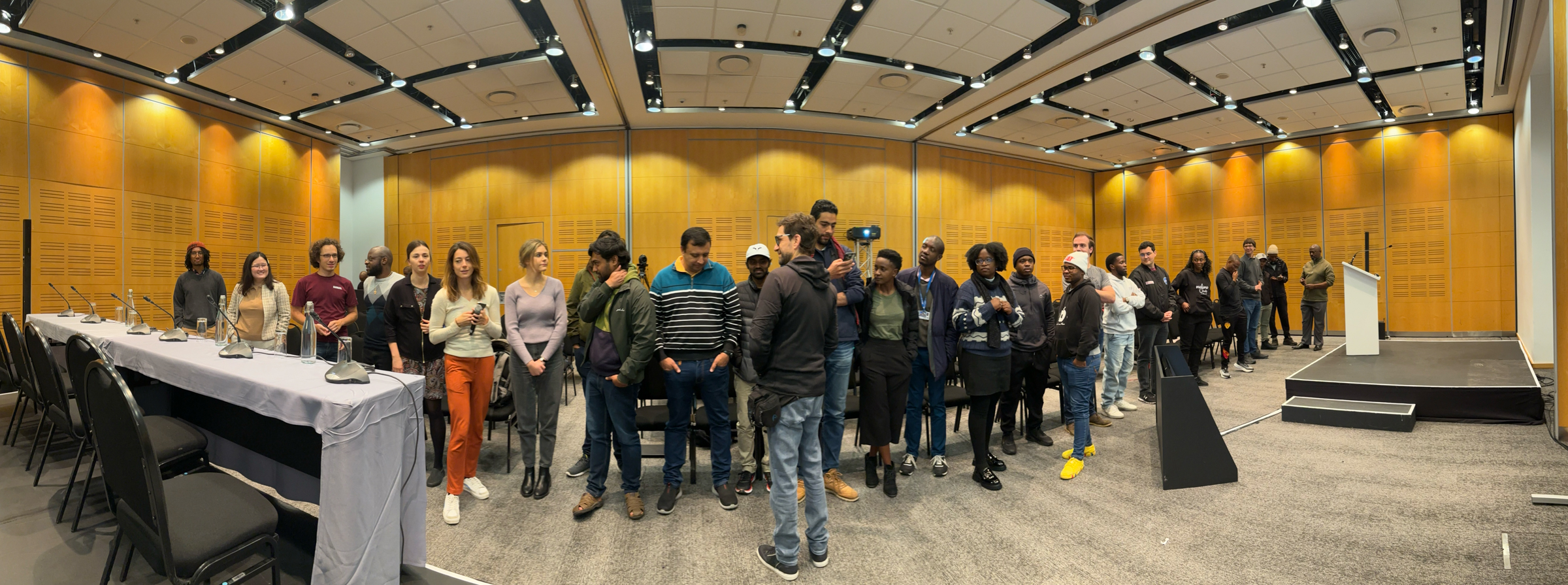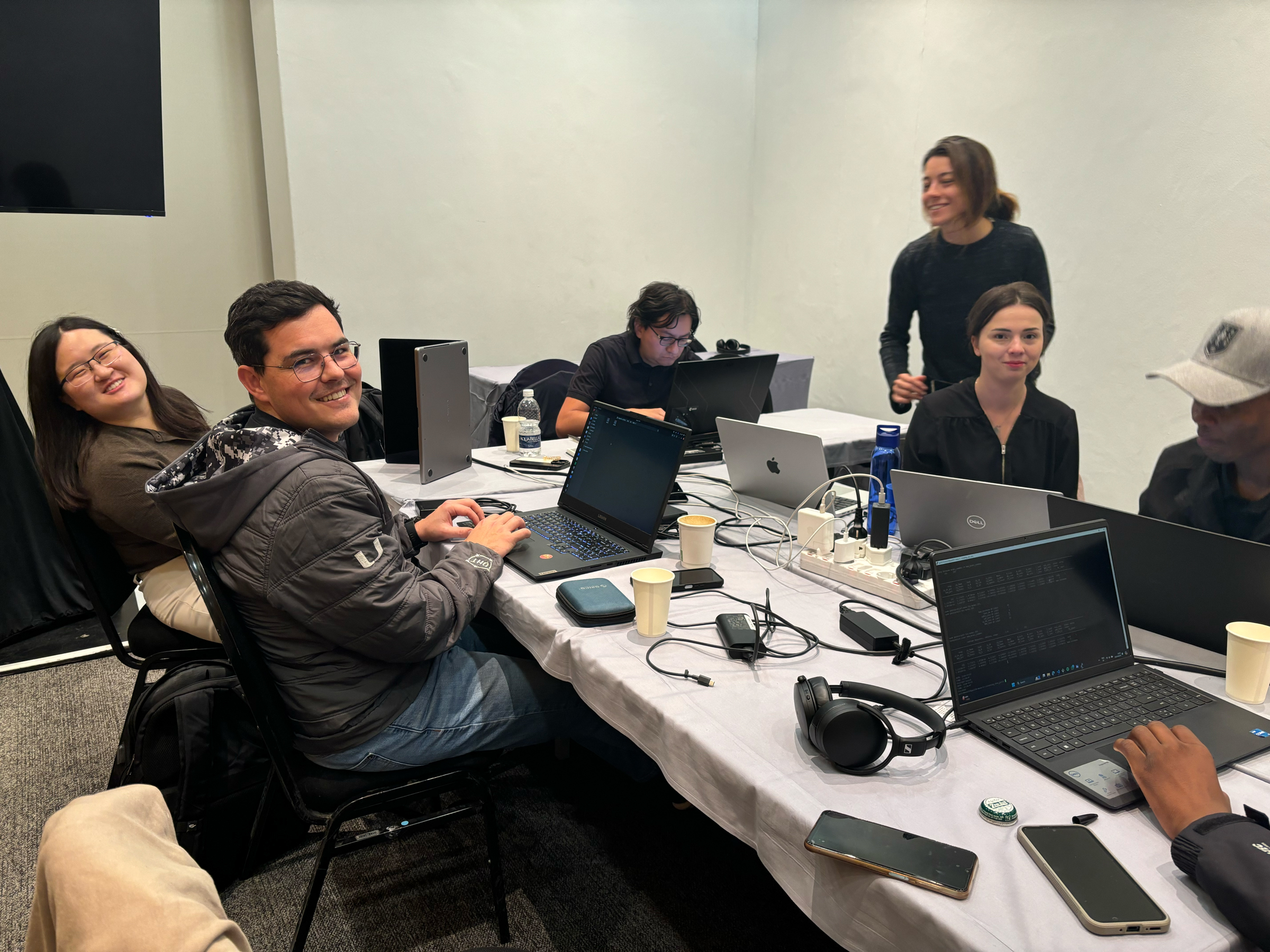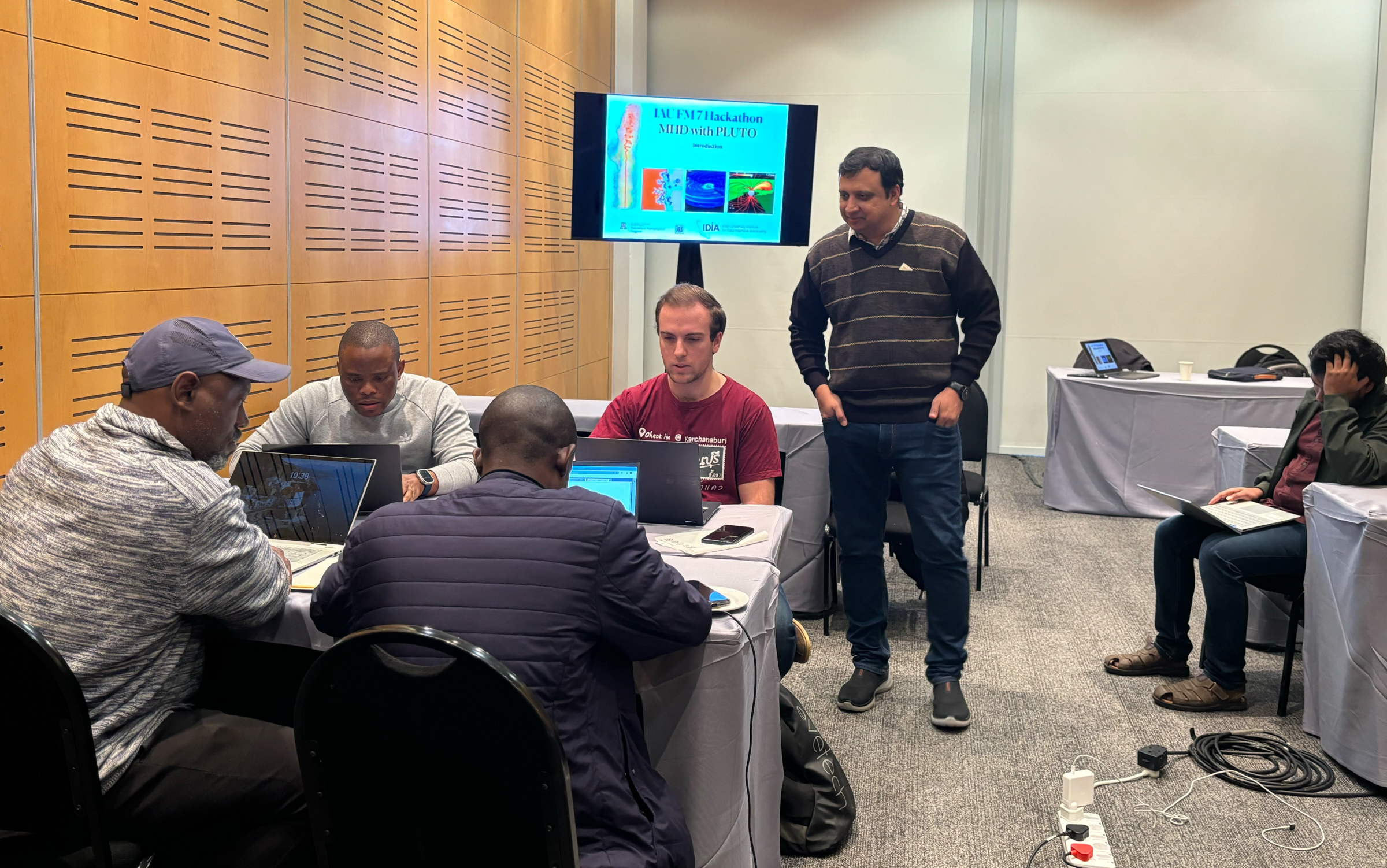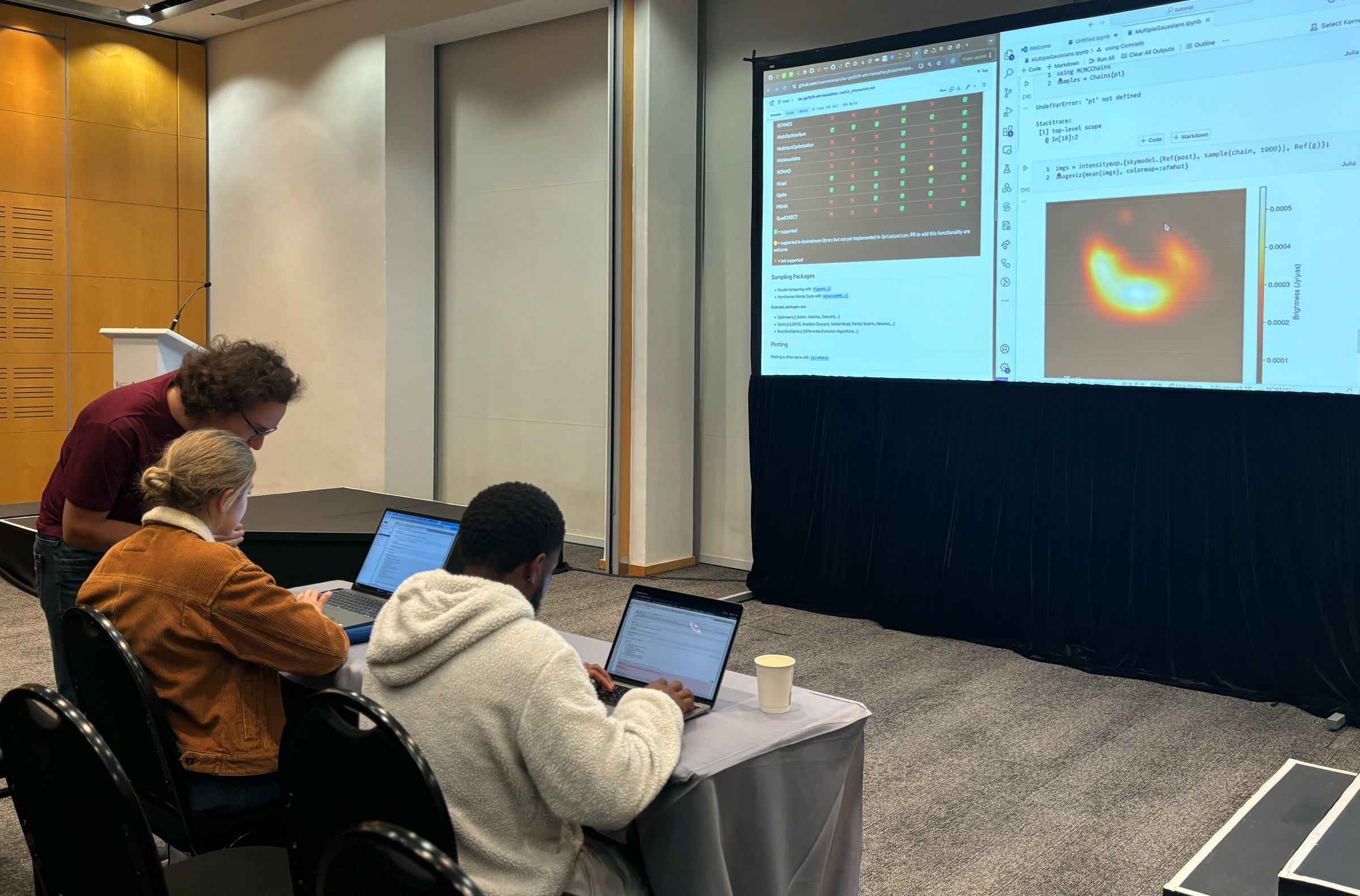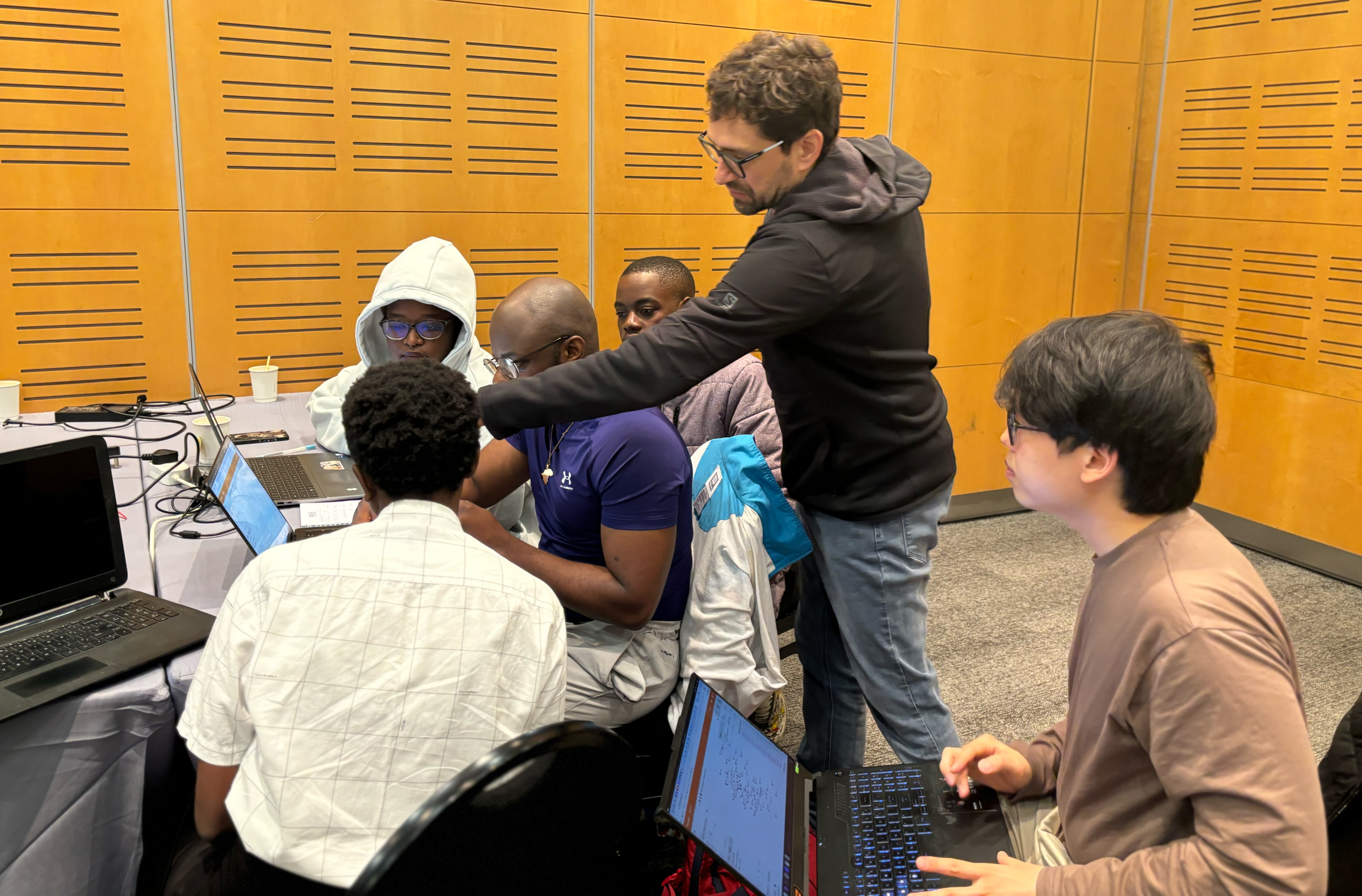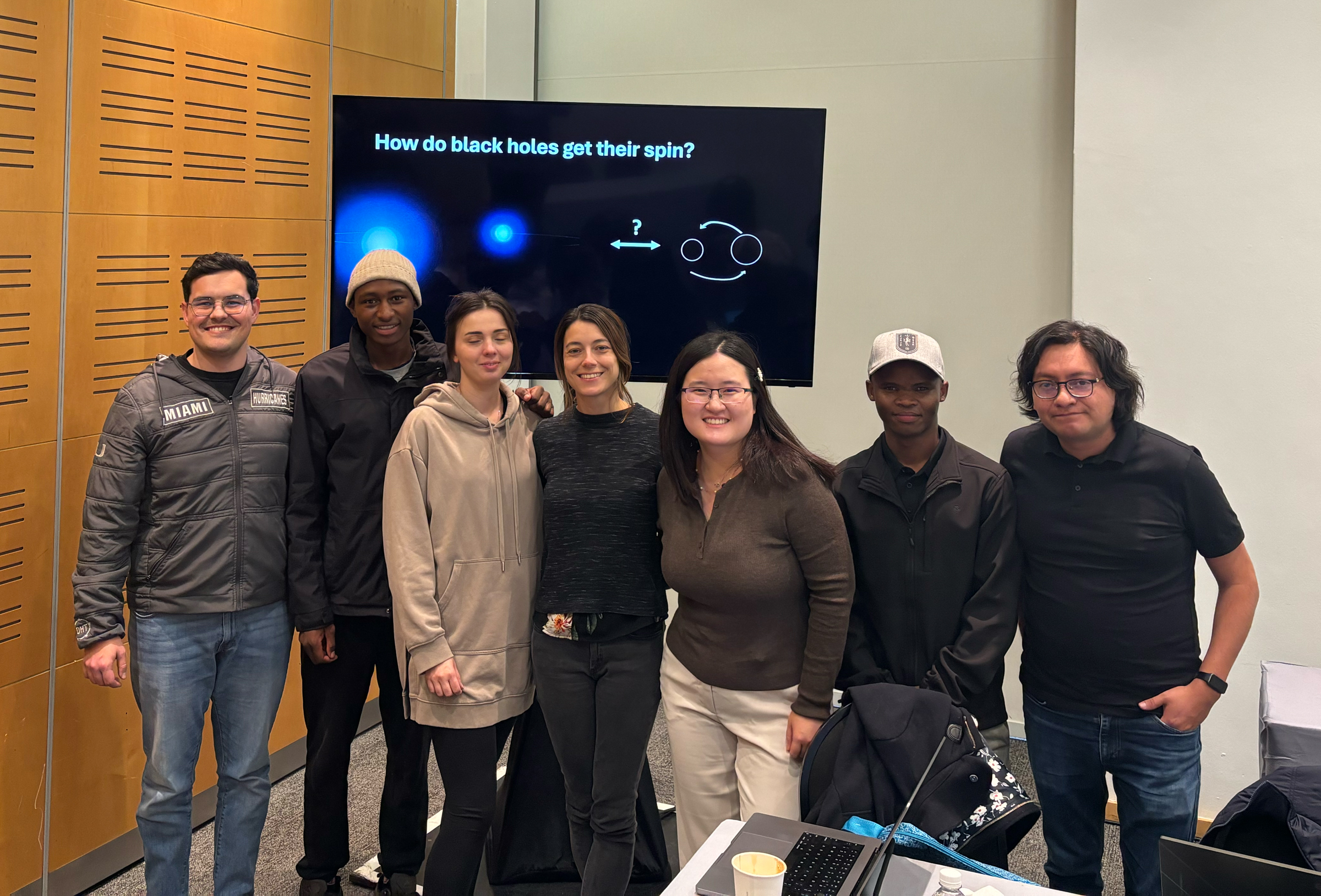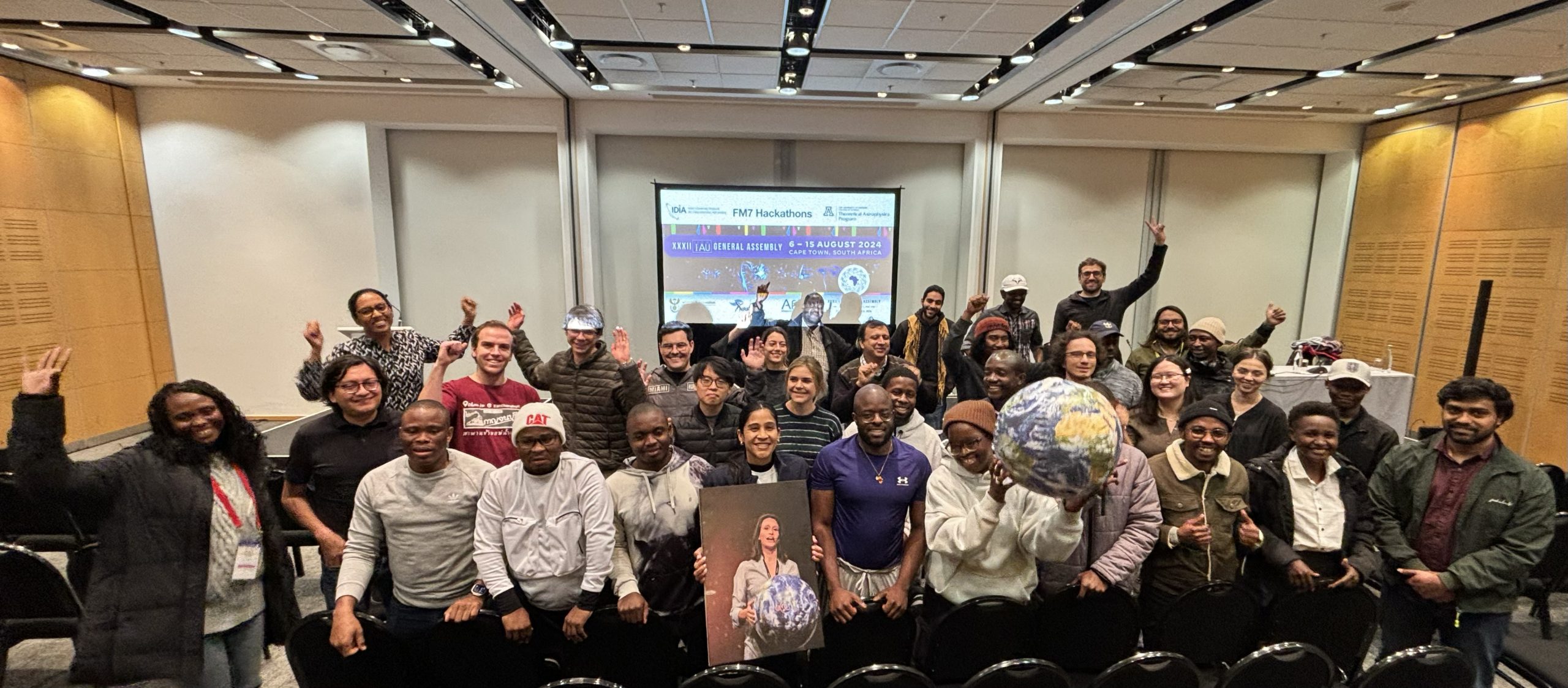TAP Computational Training
Computational Training Events and Information
TAP runs Hackathons and Computational Workshops to ensure exposure to state-of-the-art computational methods (machine learning/AI) and training in how to use astrophysical codes that drive cutting-edge research in Theoretical Astrophysics.
Computational Training Resources
High Performance Computing (HPC)
The University of Arizona offers free high performance computing resources in the Research Data Center (RDC), a state-of-the-art facility that hosts large computer clusters. Scientific research relies upon such systems to analyze massive amounts of collected data.
Benefits:
Several HPC clusters support different research computing needs whether it is for hundred’s of small jobs that only use a few cores each, or very large jobs using hundreds of cores or terabytes of memory. Or anything in between. There are also many nodes with Nvidia GPU’s.
Details are available at Compute Resources.
Service Offerings:
- A web interface to the cluster offers a file browser, a graphical desktop, and the Jupyter notebooks and RStudio applications
- An account management portal which lets you manage your account and request services
- Workshops and training in a range of HPC subjects from Introductory HPC to MPI
- The HPC is not compliant for export-controlled or CUI data
Upcoming Events
Fall 2025 Computational Workshops TBA. Sign up for the TAP Mailing List to receive TAP announcements.
Previous Events
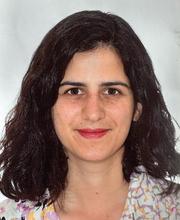
TAP Cosmology Initiative Computational Workshop I
Carol Cuesta-Lazaro, Massachusetts Institute of Technology
April 29, 2025
From Zero to Generative: Learning Generative Models from Scratch
This workshop introduces generative modeling with no prerequisites in machine learning or deep learning. Starting with basic concepts, we guide participants through the intuition and implementation of key generative frameworks, such as diffusion models. Participants will gain hands-on experience building simple versions of these models and understanding when to apply different architectures.

TAP Cosmology Initiative Computational Workshop II
Carol Cuesta-Lazaro, Massachusetts Institute of Technology
May 5, 2025
Practical Session on Using Generative Models
Speaker encourages everyone to come with their own research with questions and insights.
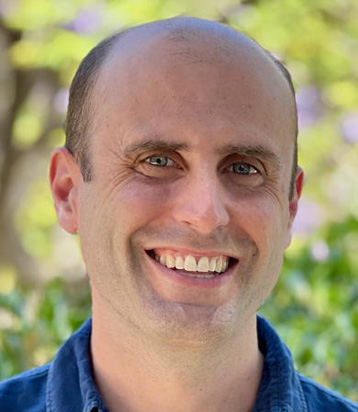
TAP Dynamics Initiative Computational Workshop
Daniel Tamayo, Harvey Mudd College
March 18, 2025
Orbital Dynamics in Python
This computational workshop will provide a hands-on introduction to the REBOUND N-body integration package. We will introduce some of the basics, discuss its new visualization tools, as well as go through how to customize the code for your own scientific goals. We will then show how various common astrophysical effects (tides, oblateness, radiation pressure, etc.) can be easily incorporated using the REBOUNDx library, and how you can add your own custom effects. Finally, we will introduce celmech, a new Python package for facilitating theoretical orbital mechanics calculations and isolating the effects of resonances, secular dynamics, and much more!
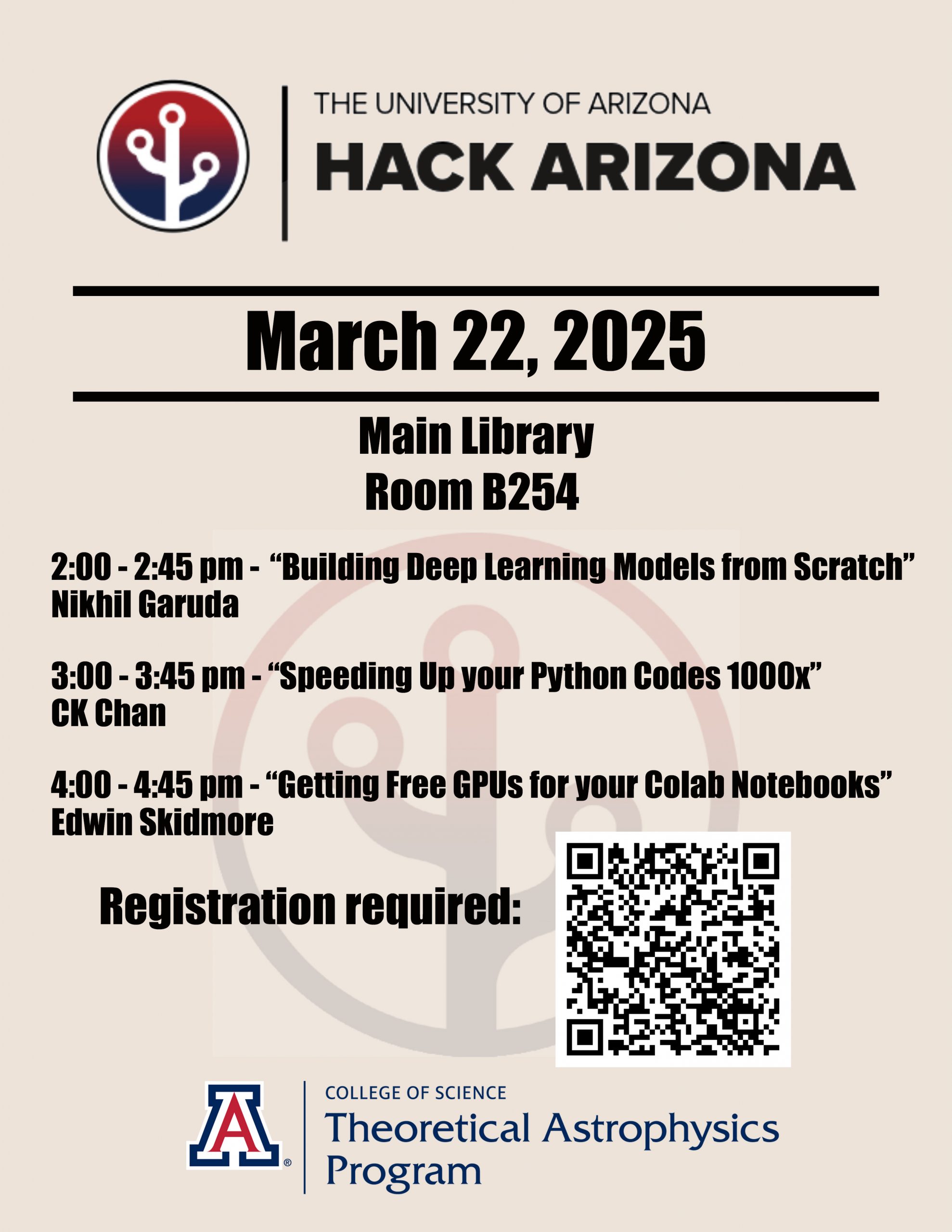
Photochem Workshop
Nicholas Wogan, NASA Ames Research Center
An Open-Source Chemical and Climate Model of Planetary Atmospheres
Learning Objectives:
A brief introduction to photochemistry and climate modeling
Installing Photochem
First photochemistry simulation: a model of Modern Earth
Modifying chemical reaction rates or other internal model data (e.g., photolysis or aerosol cross sections)
Modifying the Photochem source code & contributing to the model
First climate simulations: reproducing the Habitable Zone
If we have time – a photochemistry and climate simulation of TRAPPIST-1e assuming it is an inhabited world.
Deep Learning for Astrophysics Hackathons
Organized under the TAP Computation and Data Initiative, Chi-Kwan Chan ran weekly hackathons (11 sessions) open to all TAP members in FY24. 18 participants from Astronomy, Physics, and Computer Science joined the hackathons. The sessions were designed to teach a variety of applications for deep learning in science, train on neural network learning, and provide hands-on experience working through challenging projects and solutions.
Overview doc of all the sessions
Links used for Hackathon Teaching Concepts:
The IAU 2024 General Assembly in Capetown, South Africa
TAP, a partner for the IAU 2024 General Assembly held in Capetown, South Africa, was featured in the event’s poster sessions and event website. This was an exceptional opportunity to be in front of a large global audience of potential faculty, postdocs, and graduate students. TAP Faculty Member Chi-Kwan Chan represented TAP with a project poster submission and Q&A.
